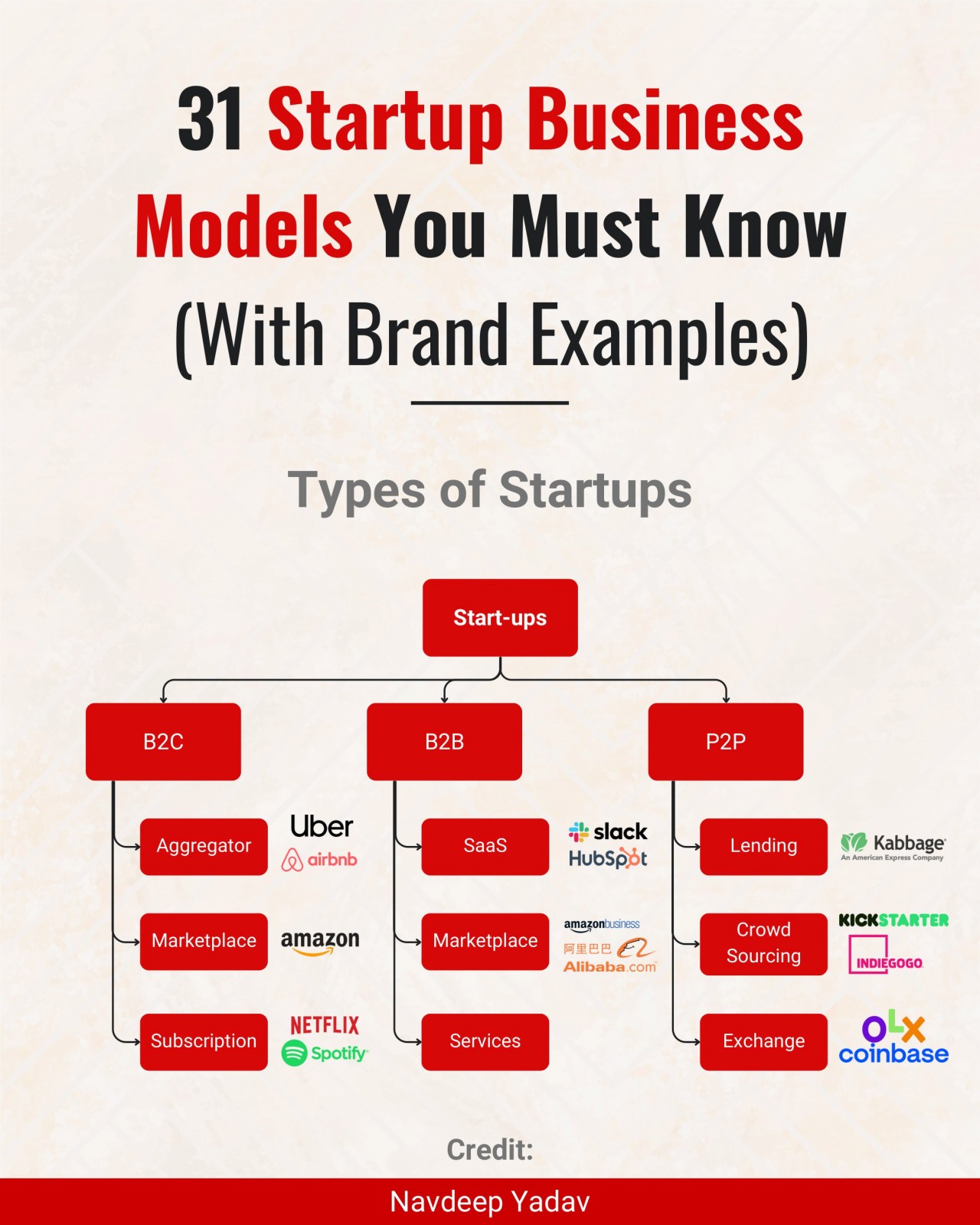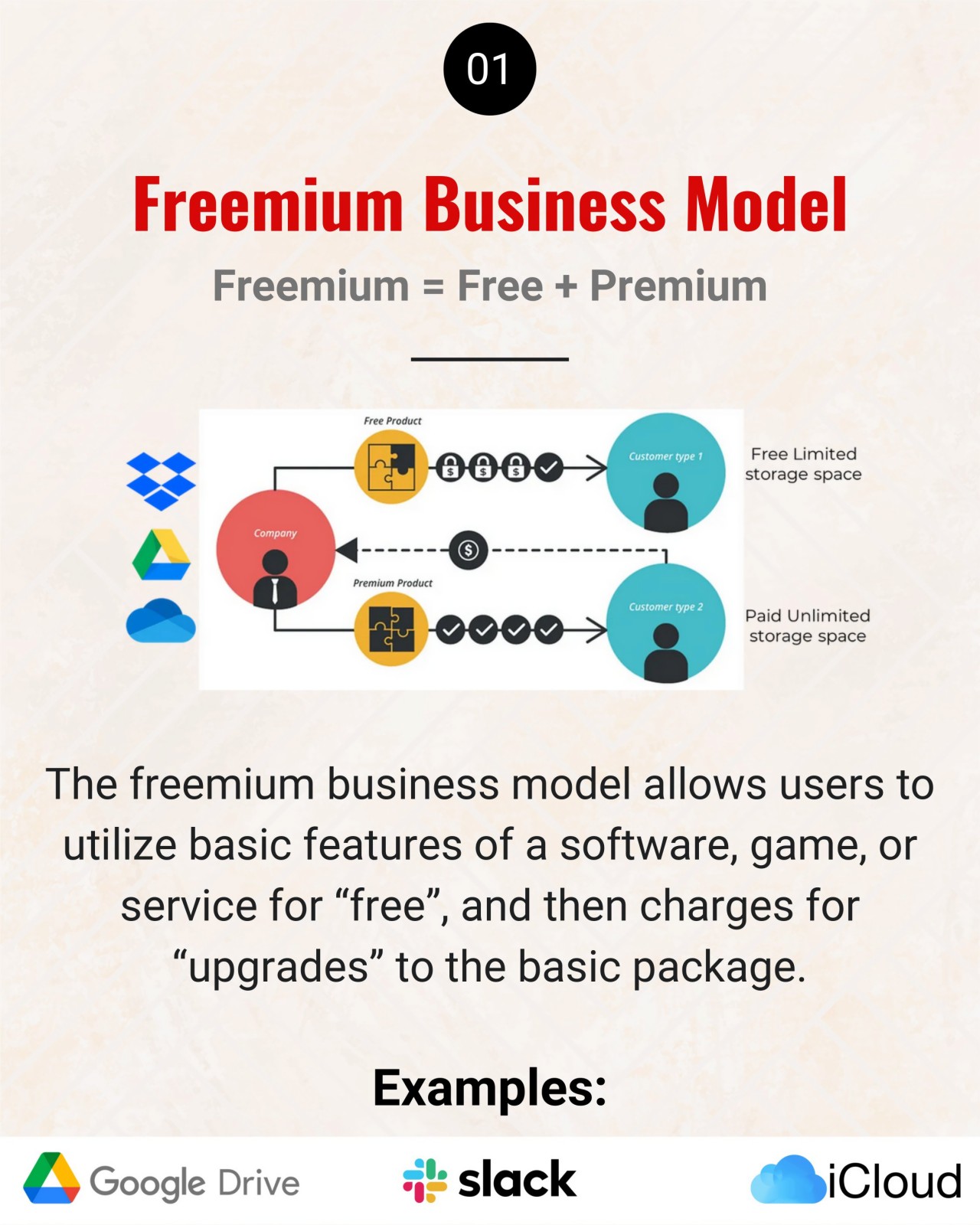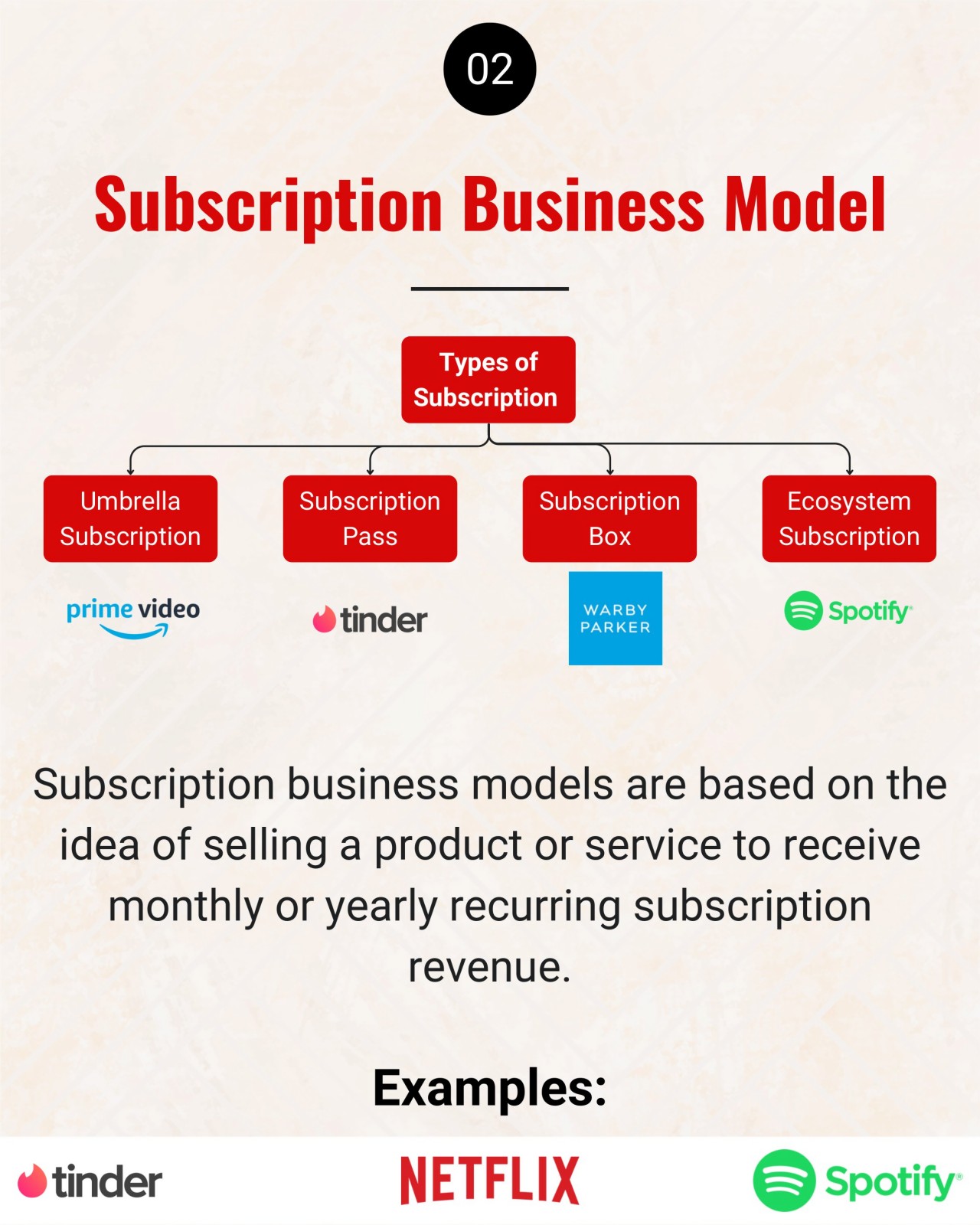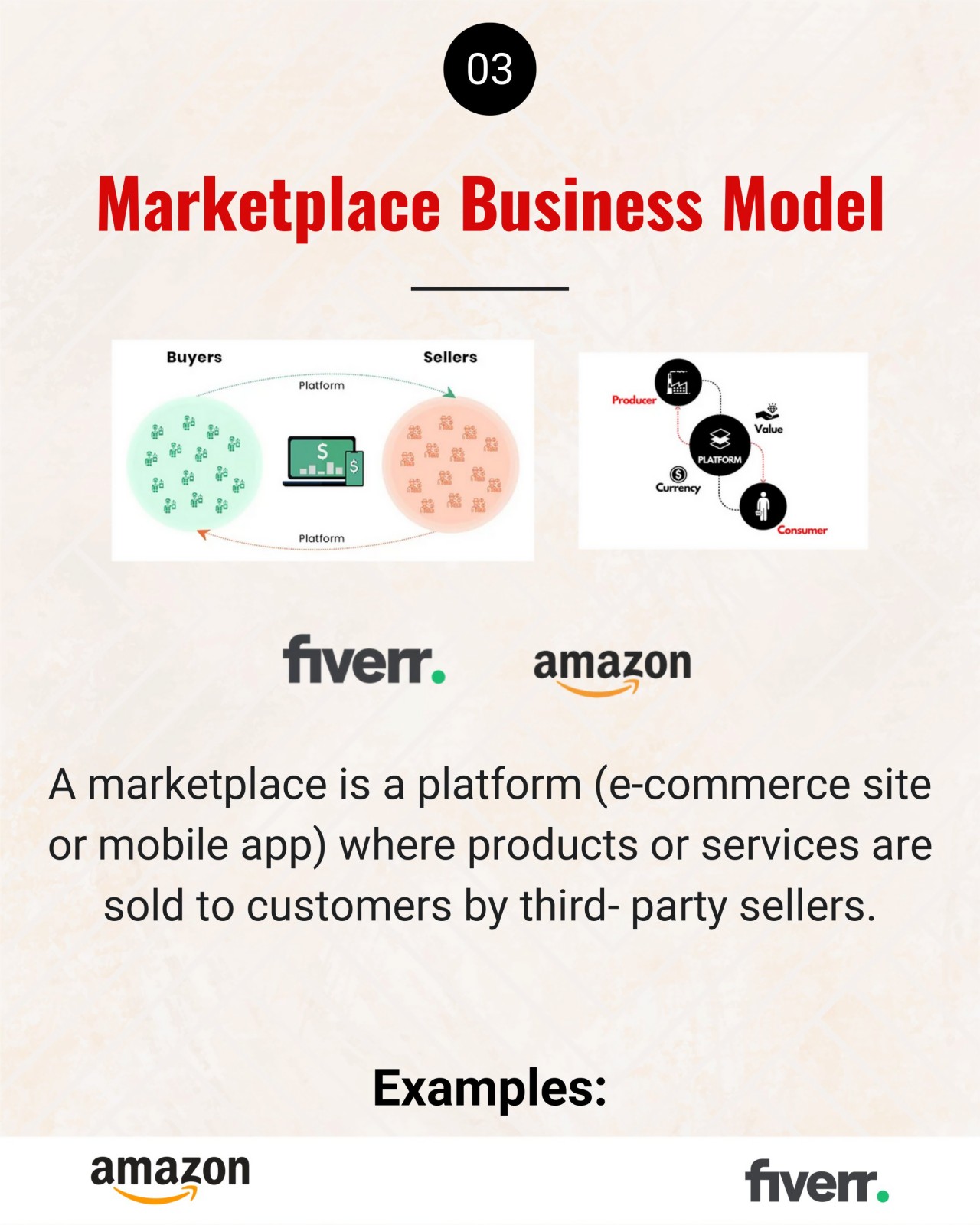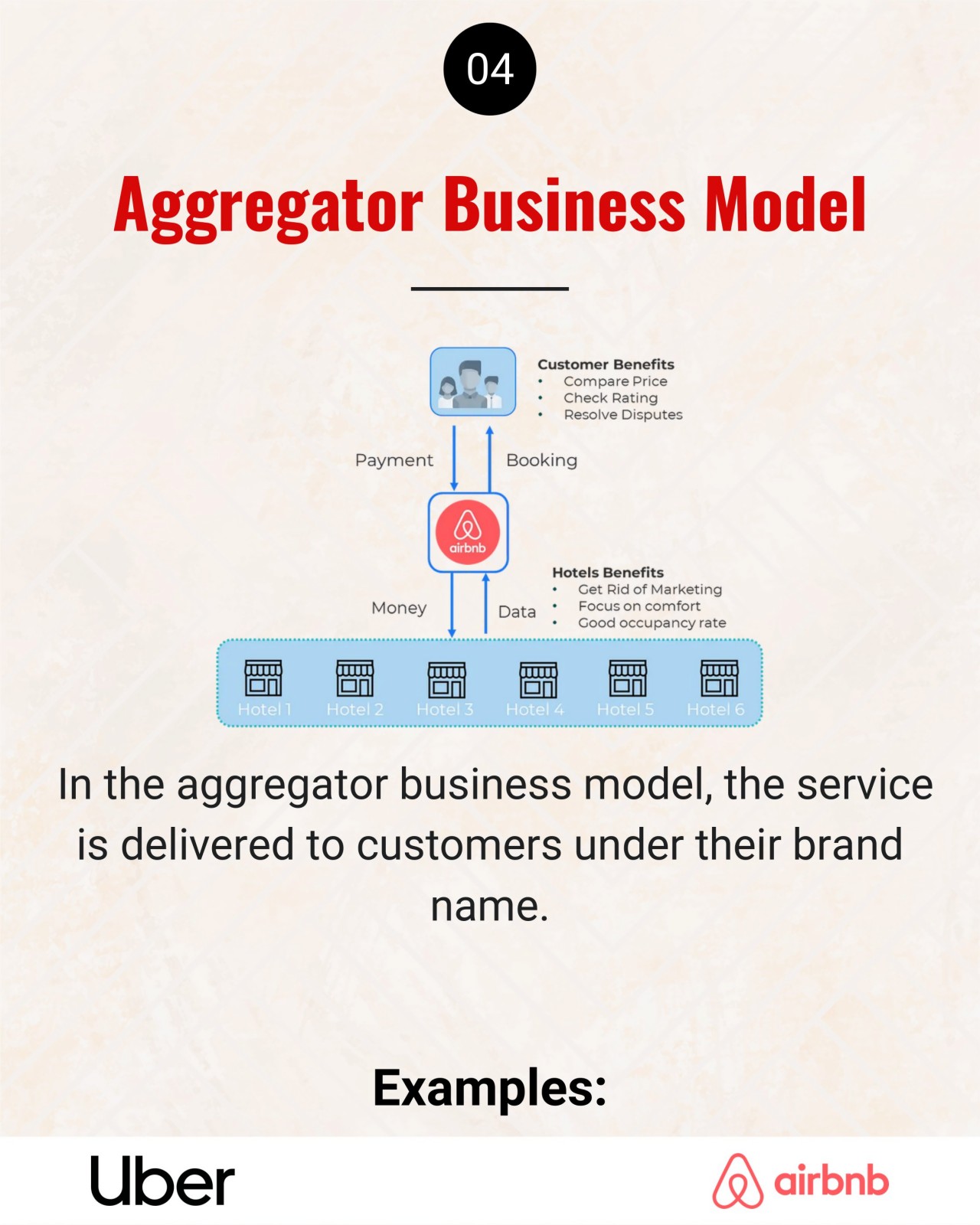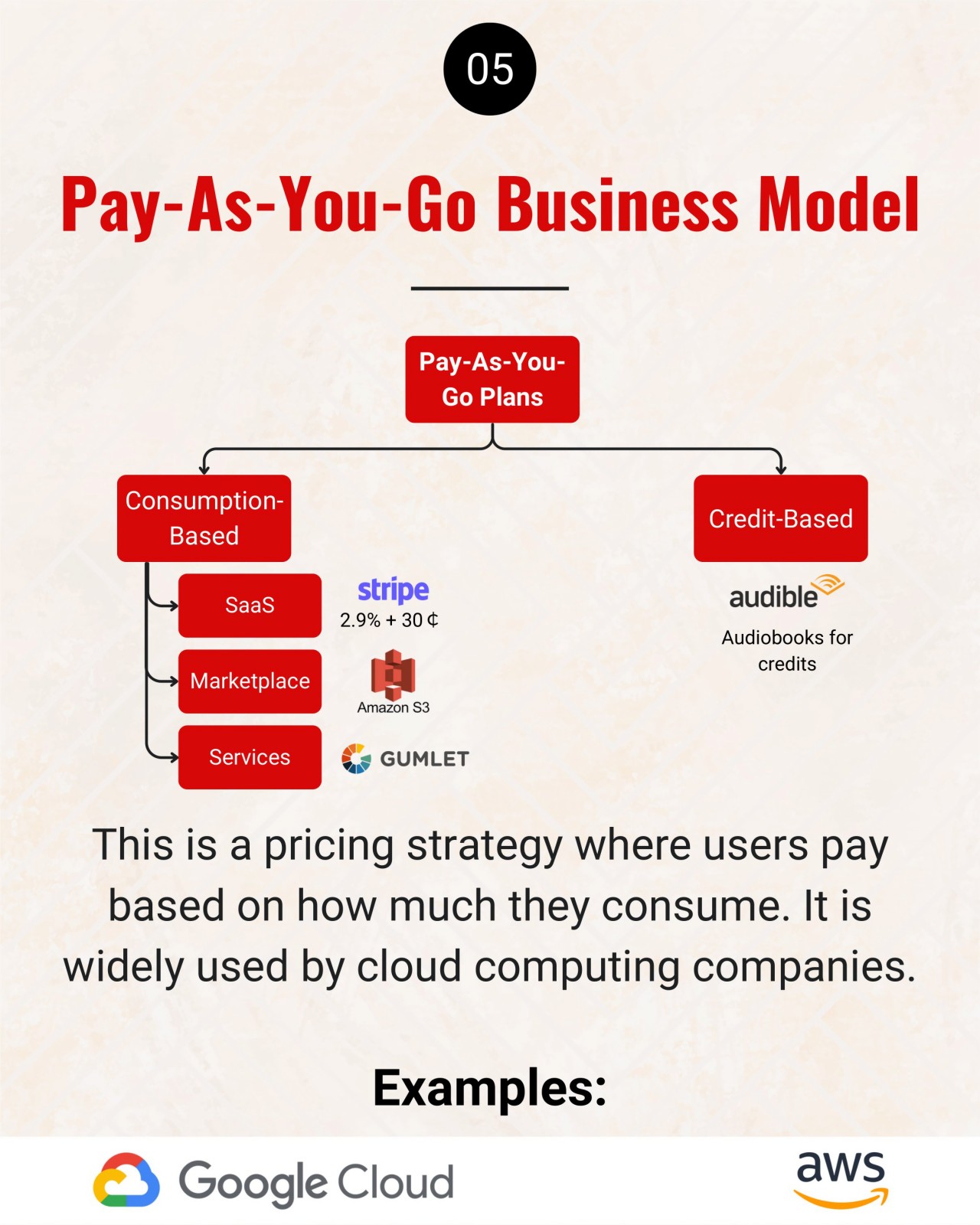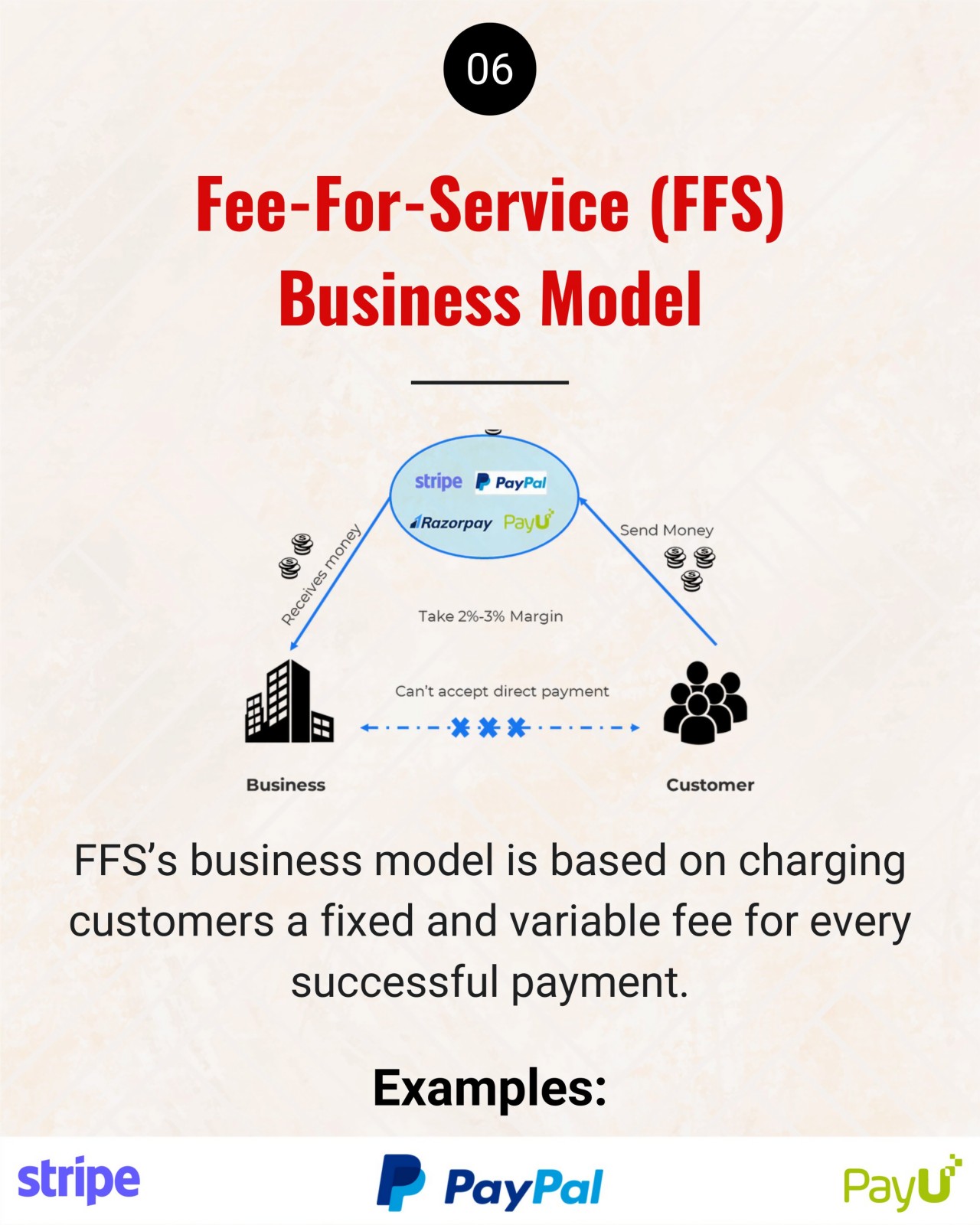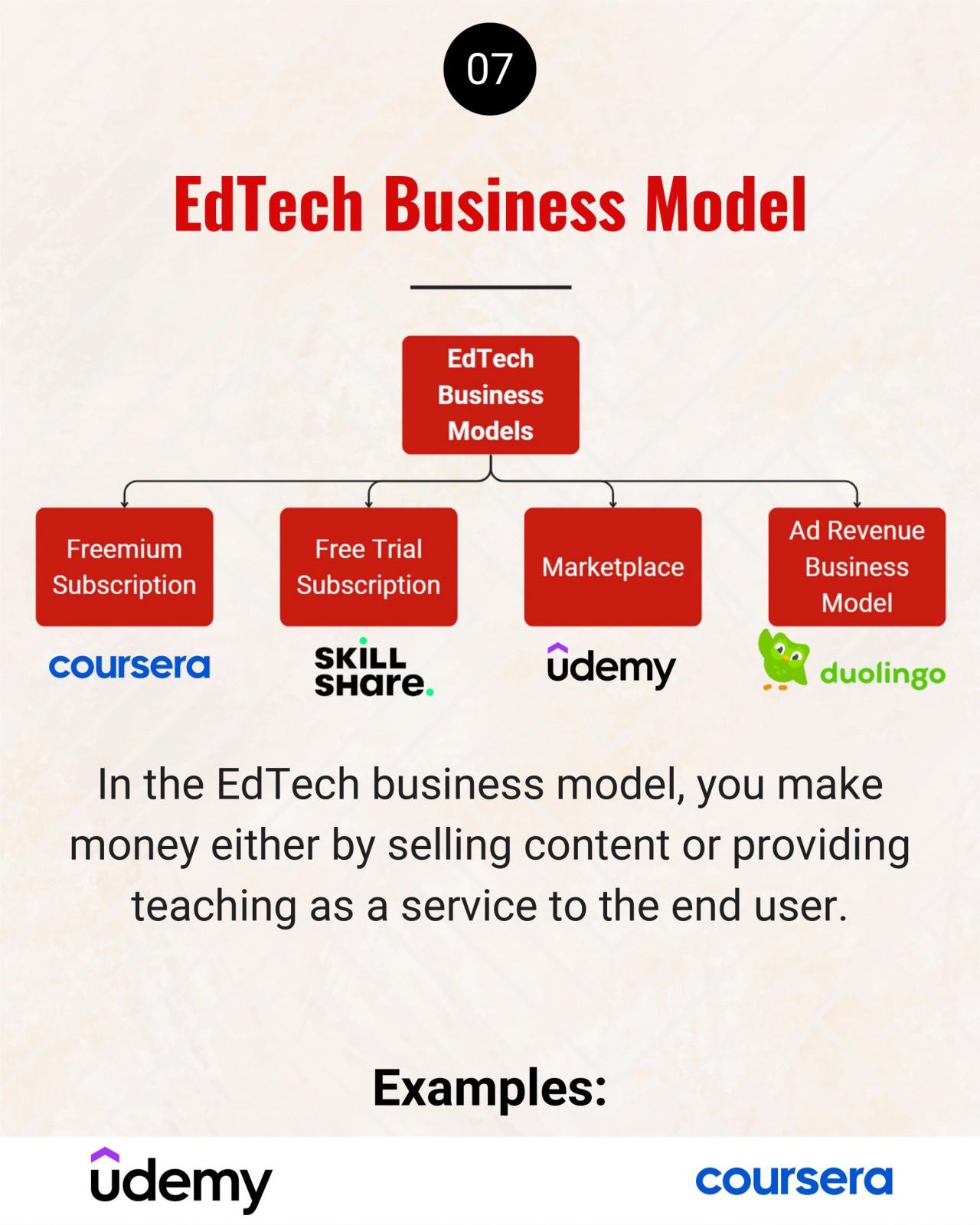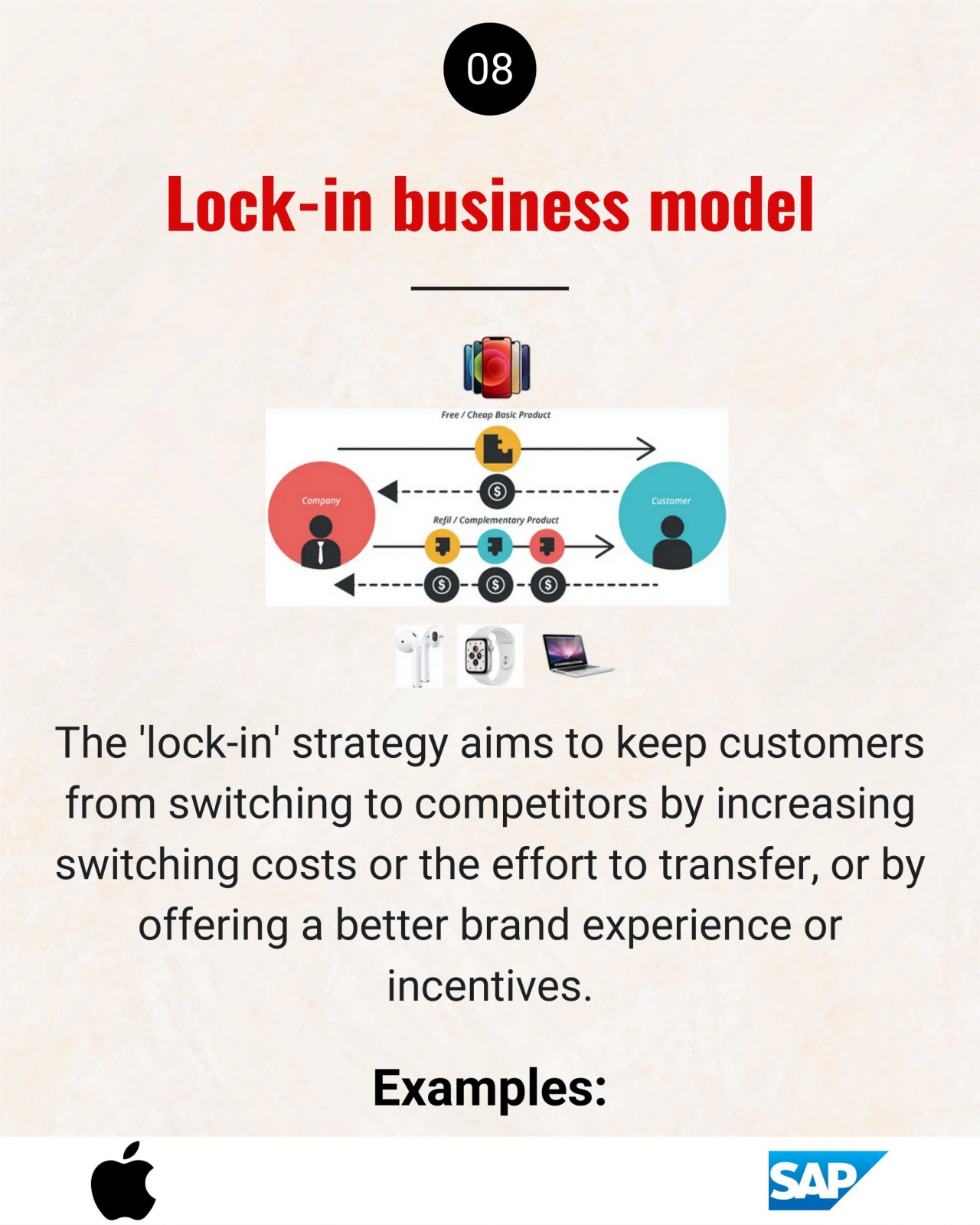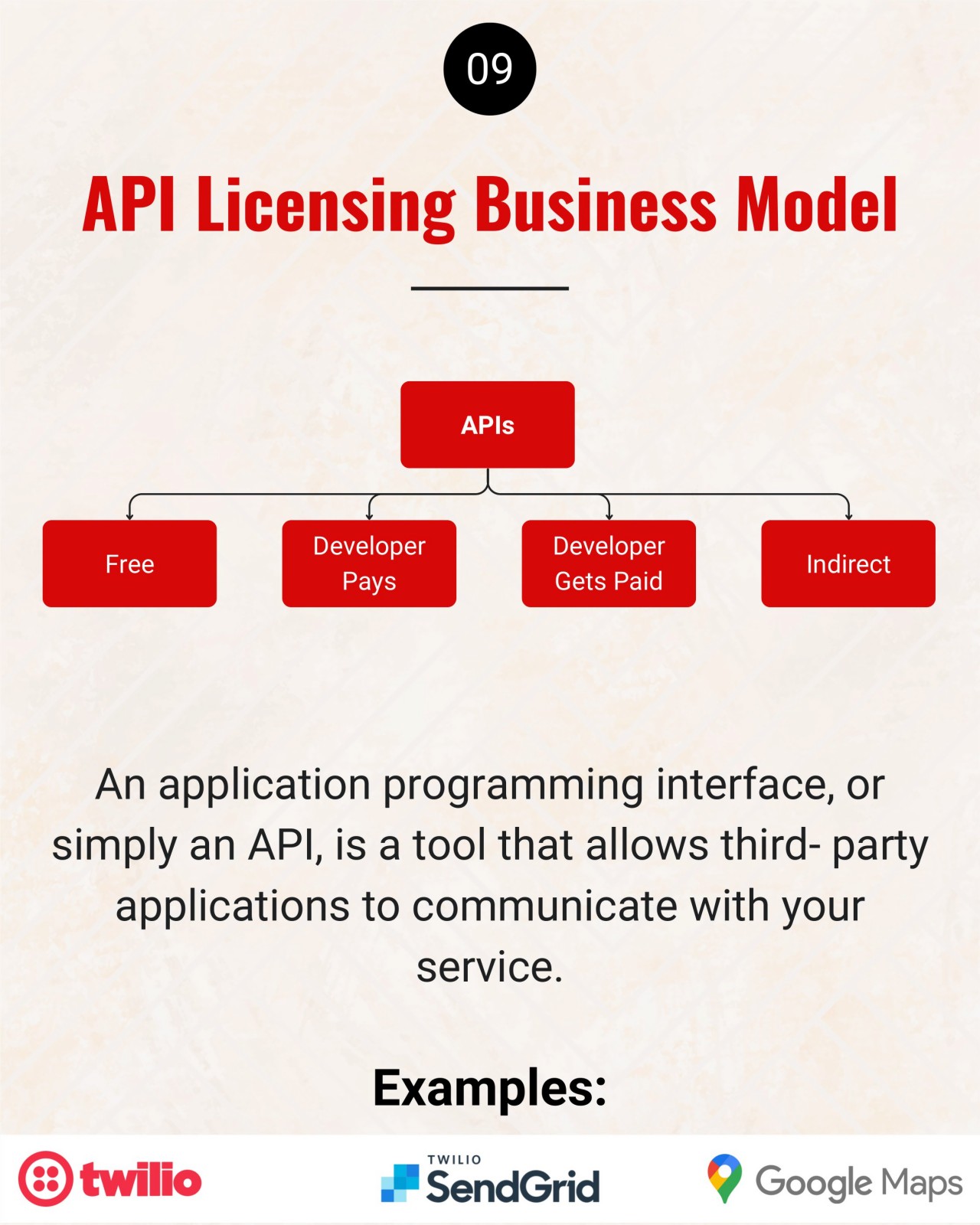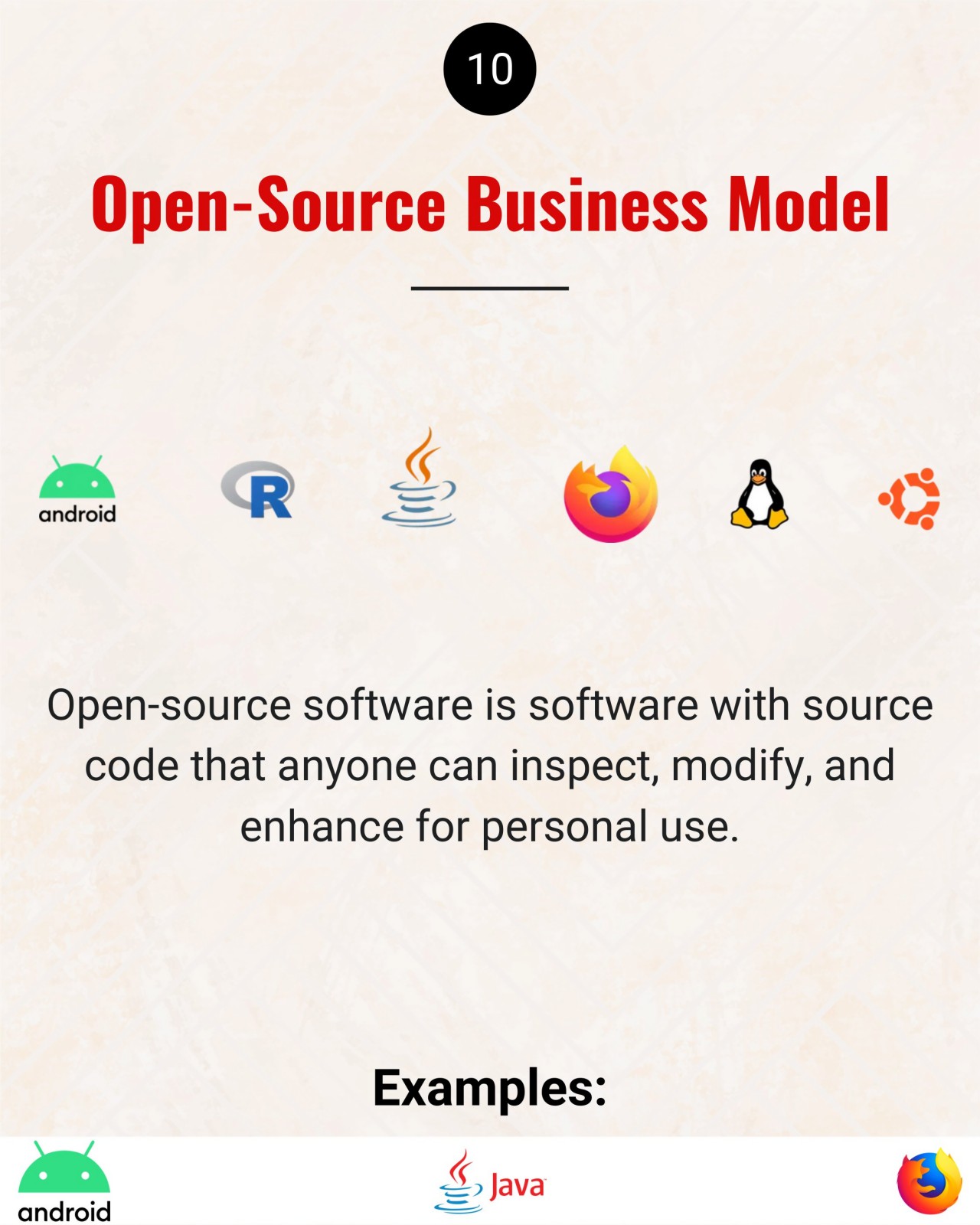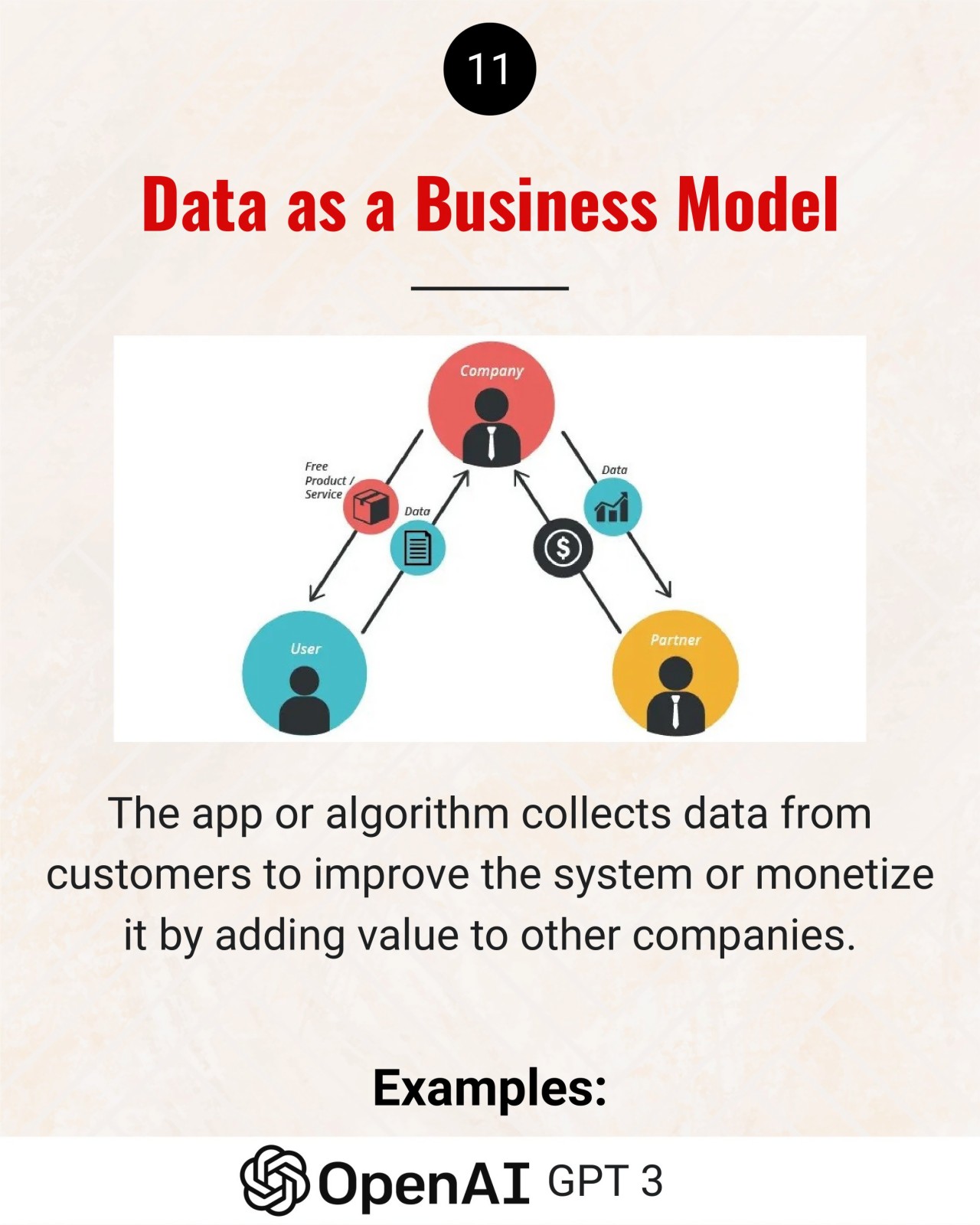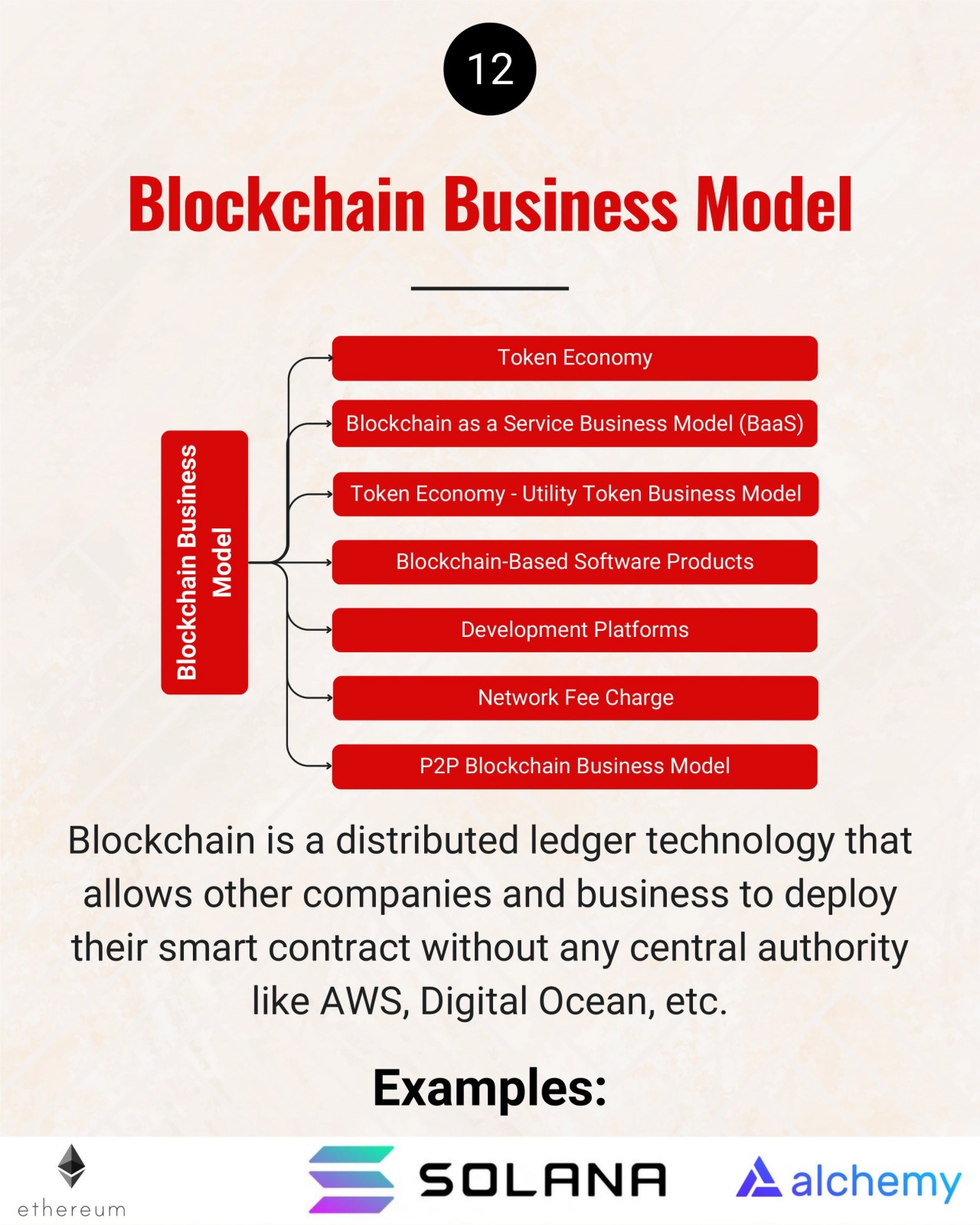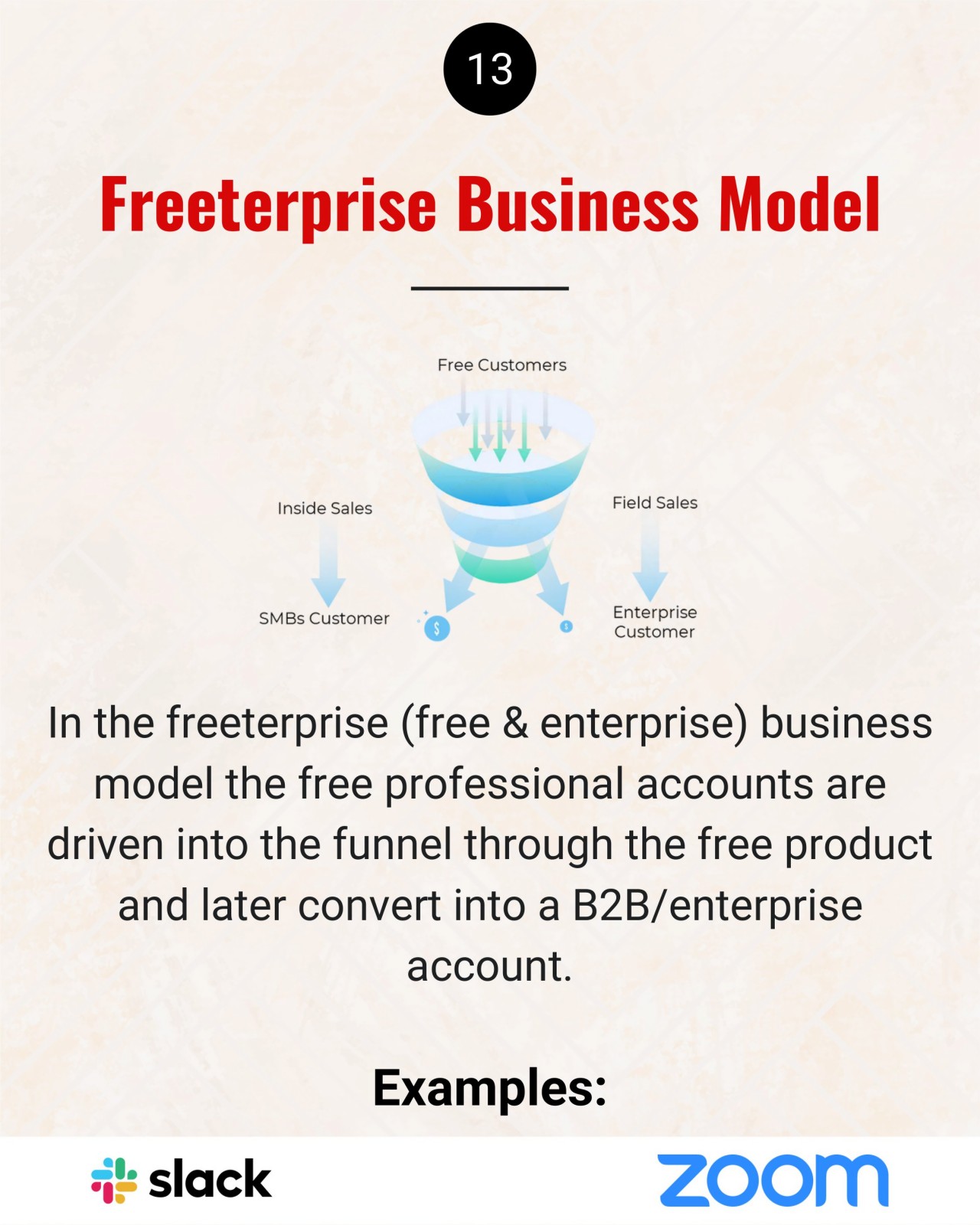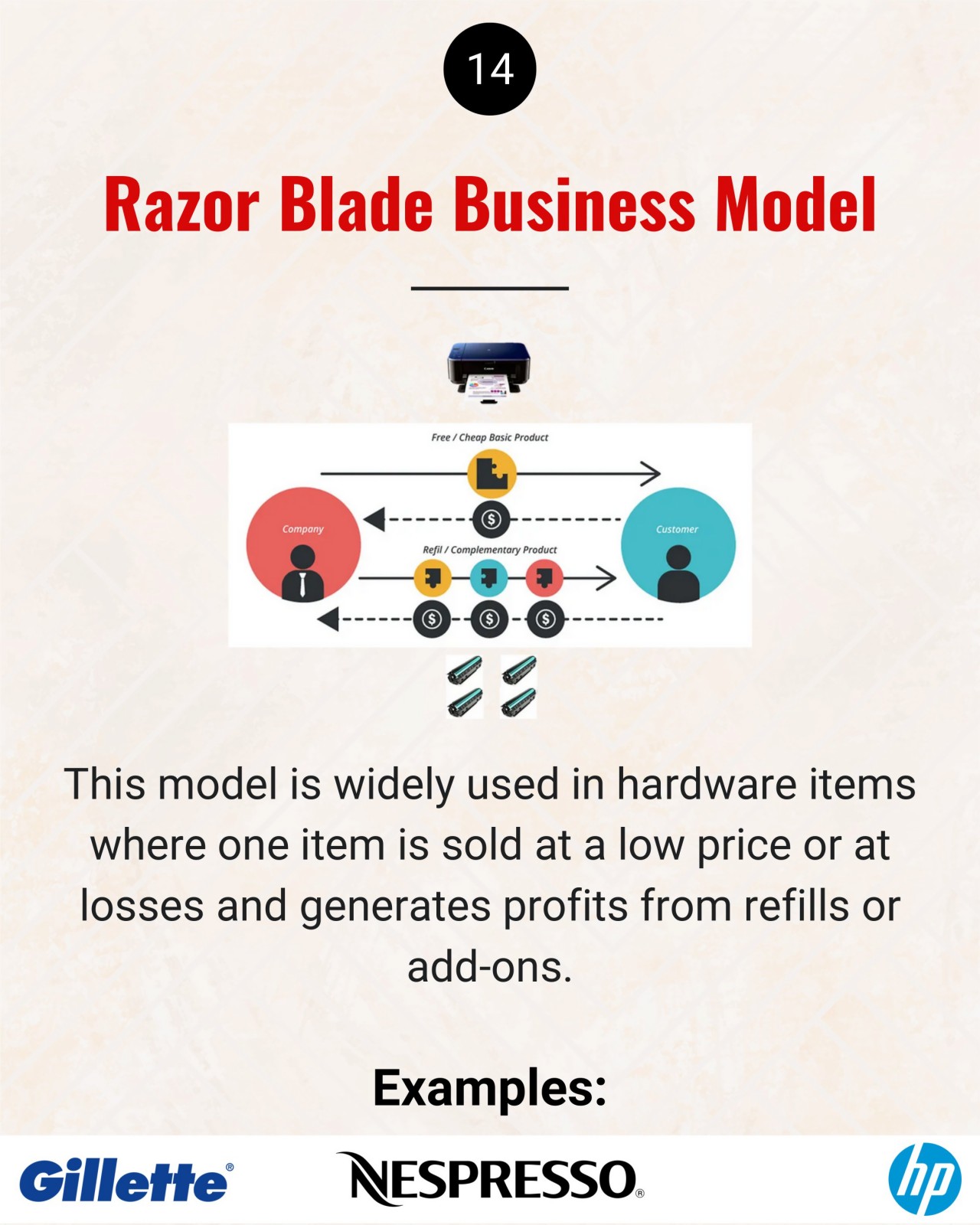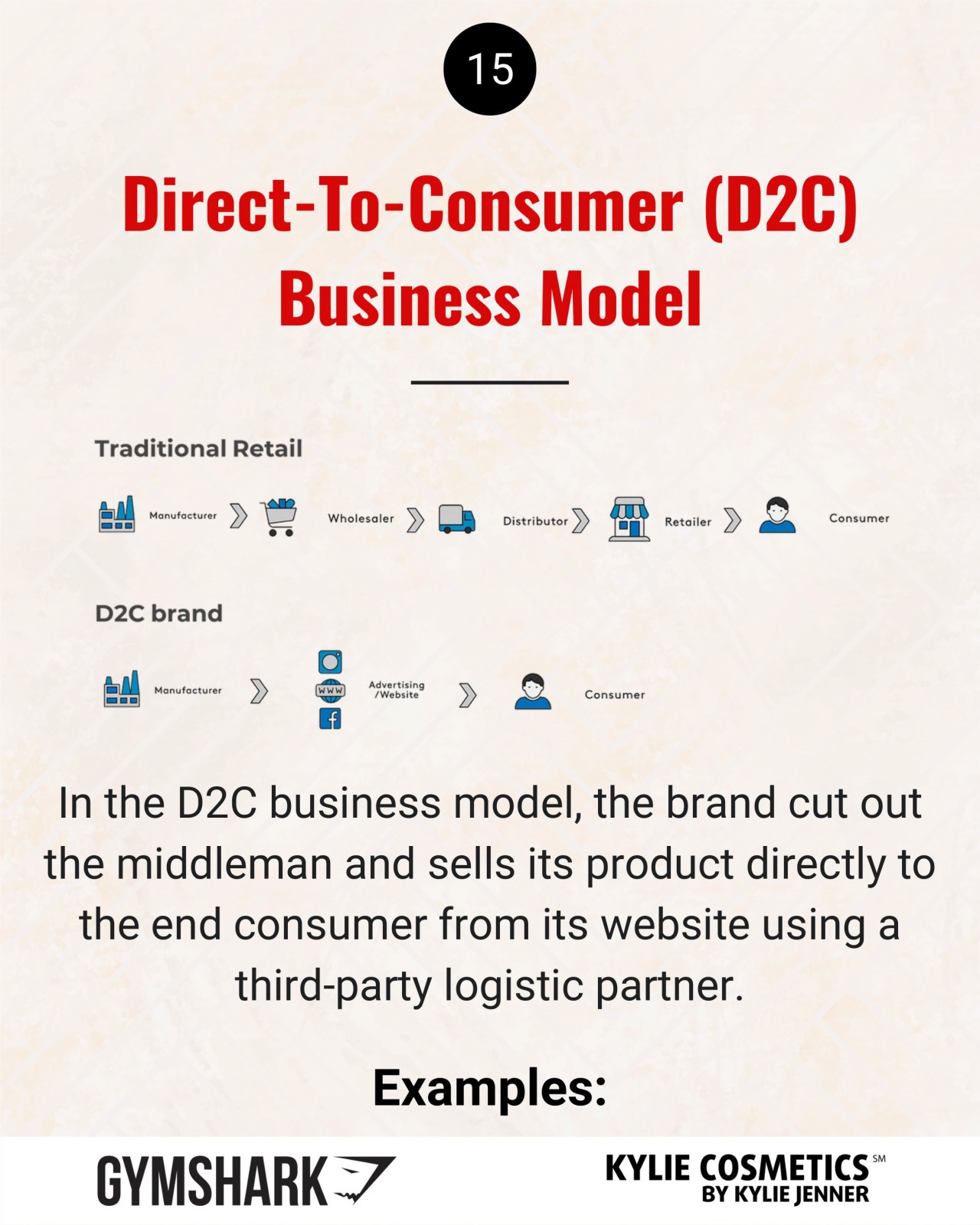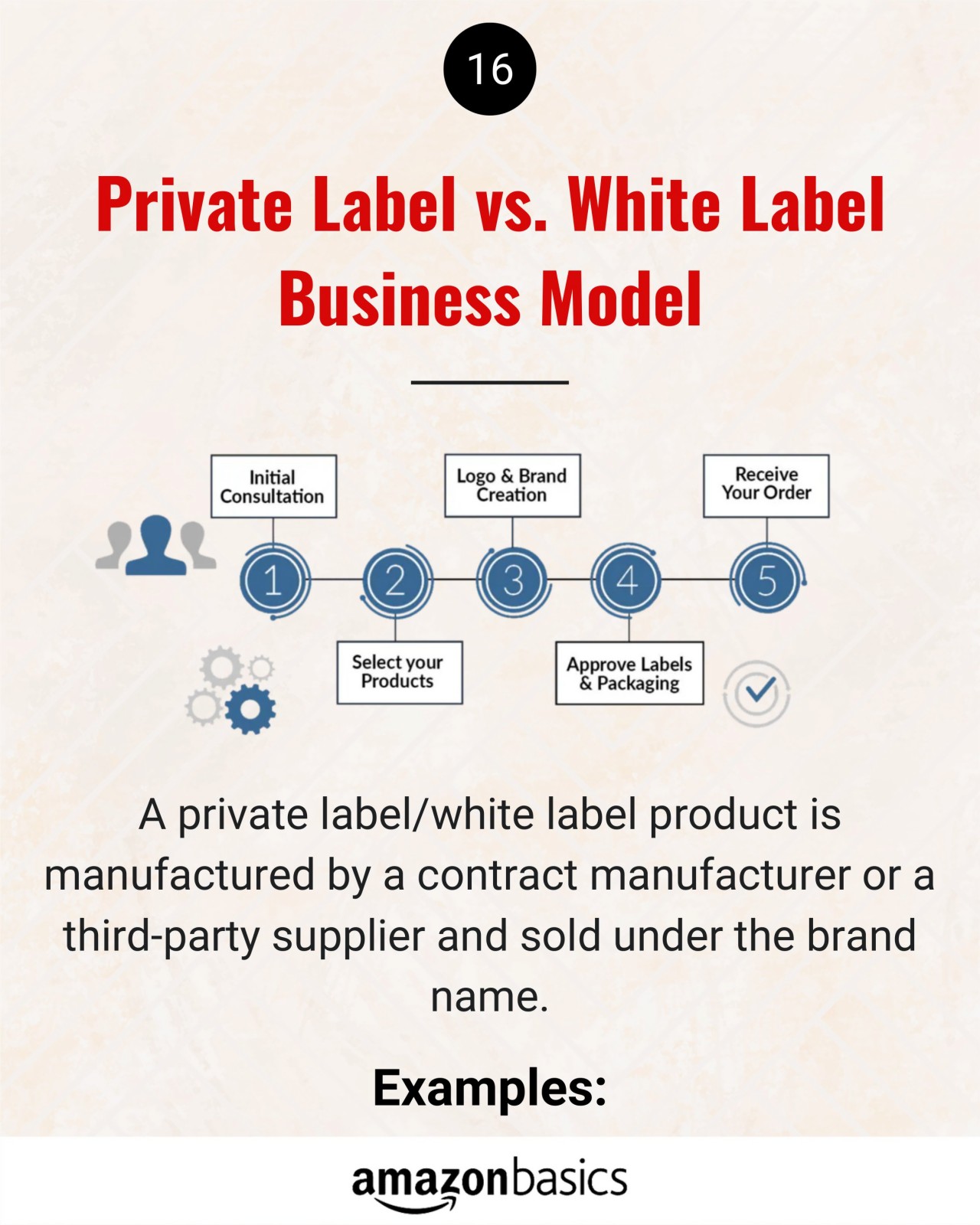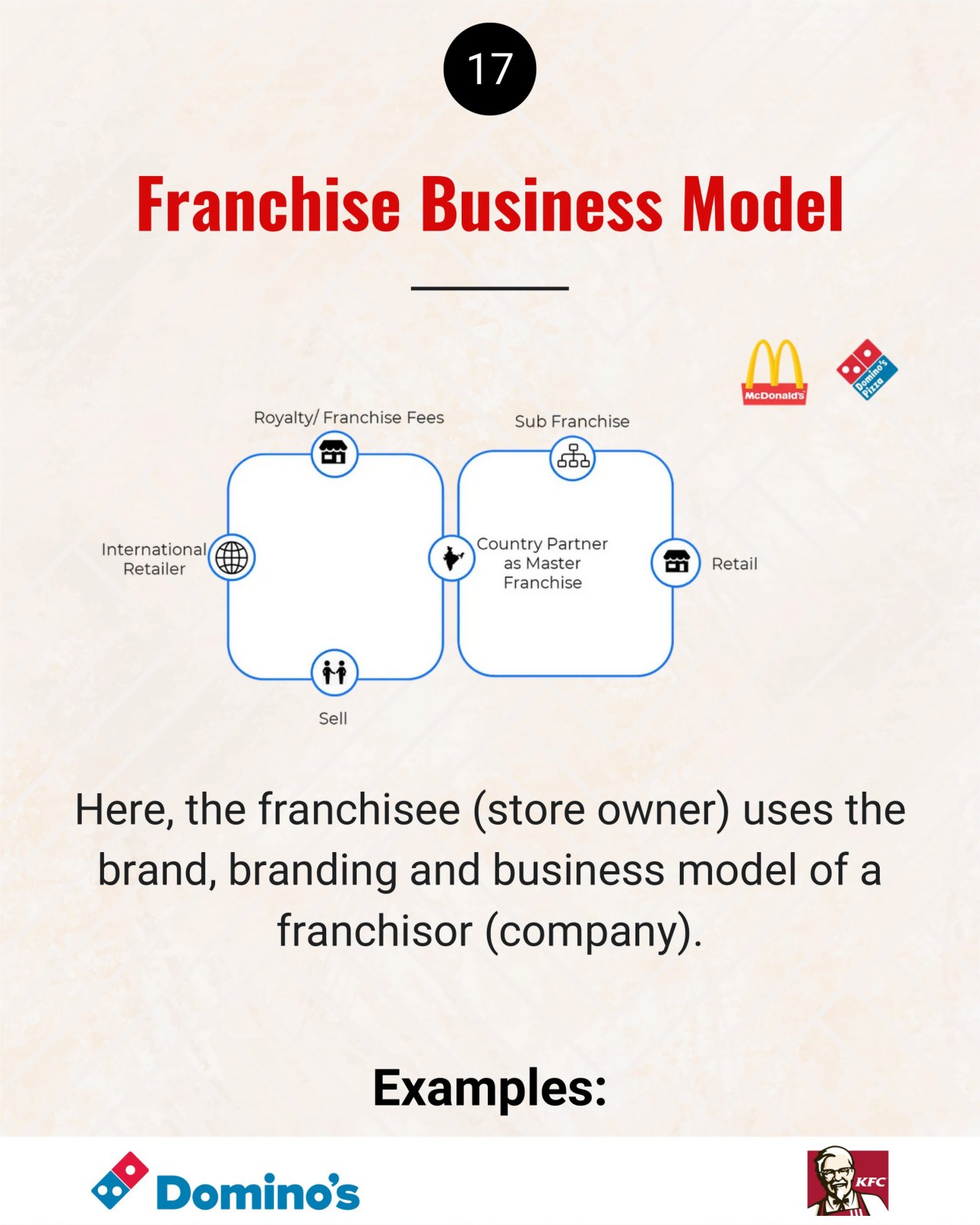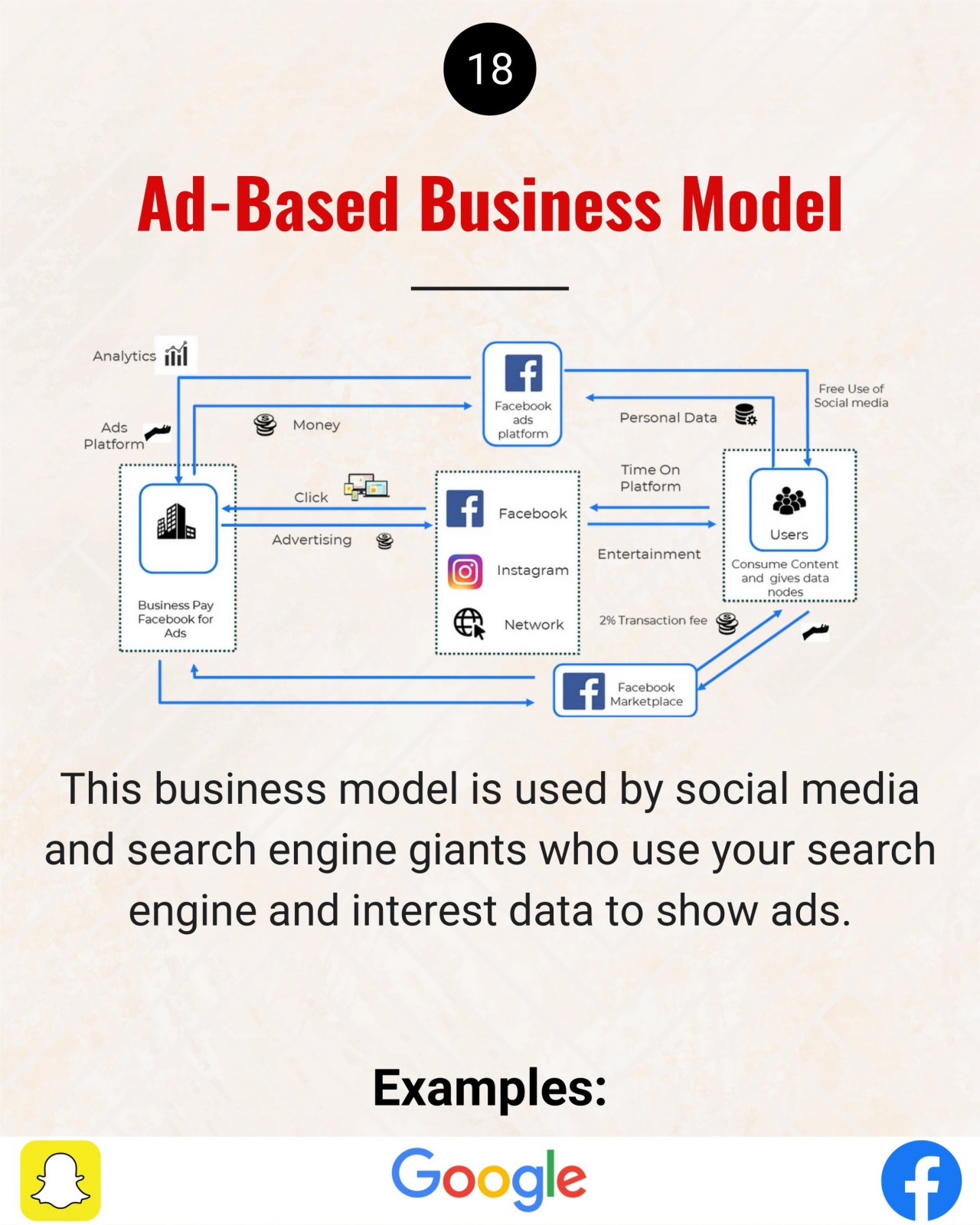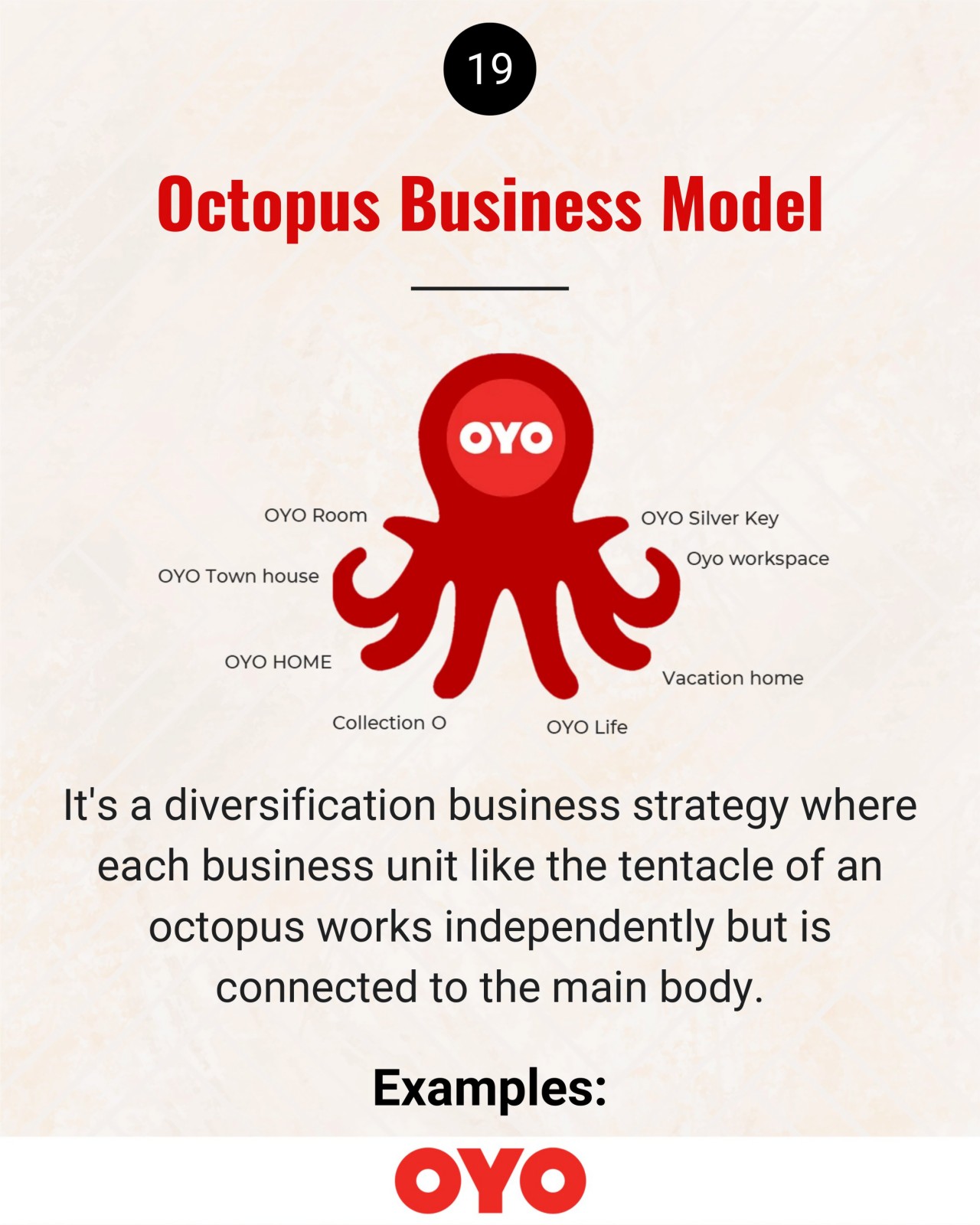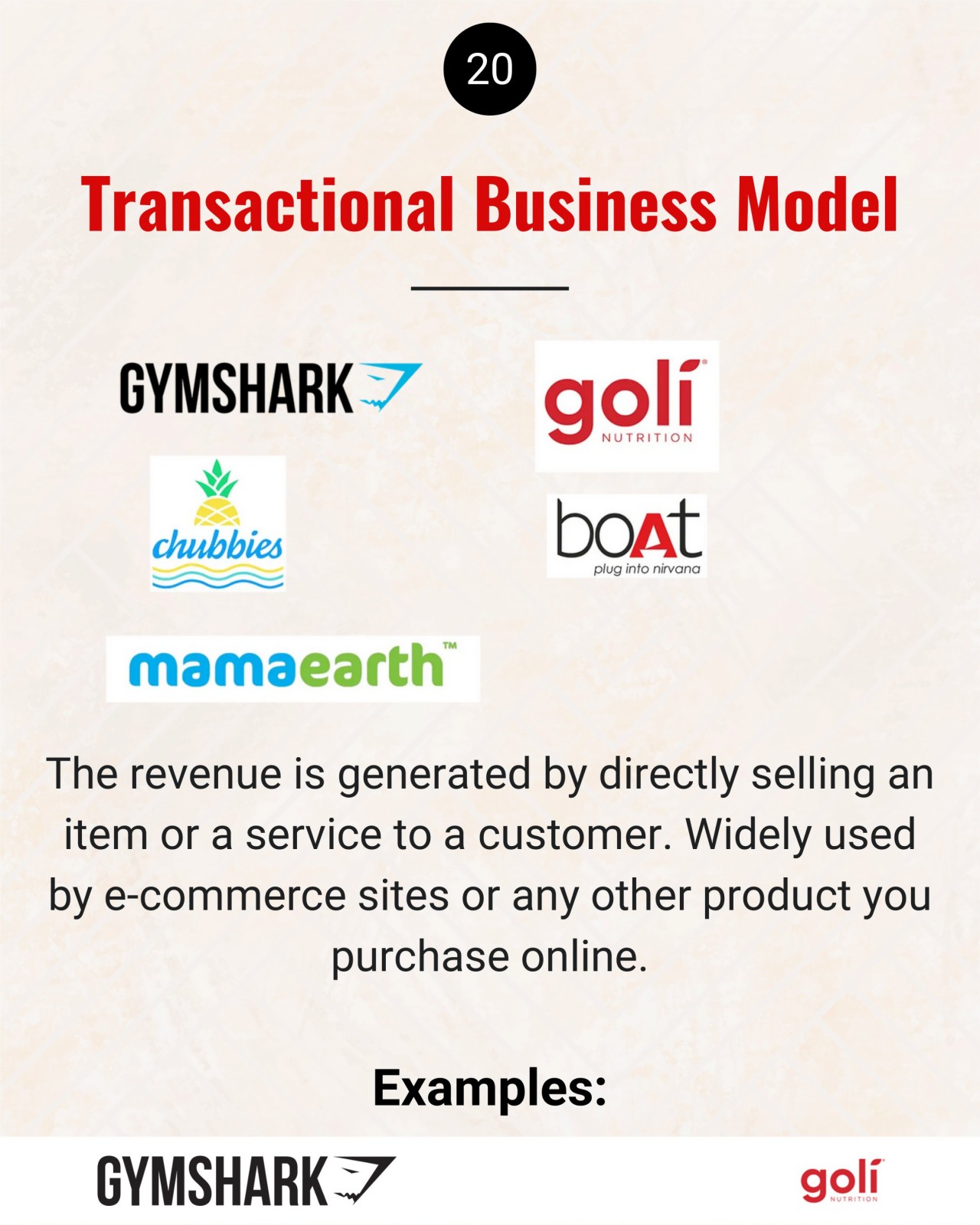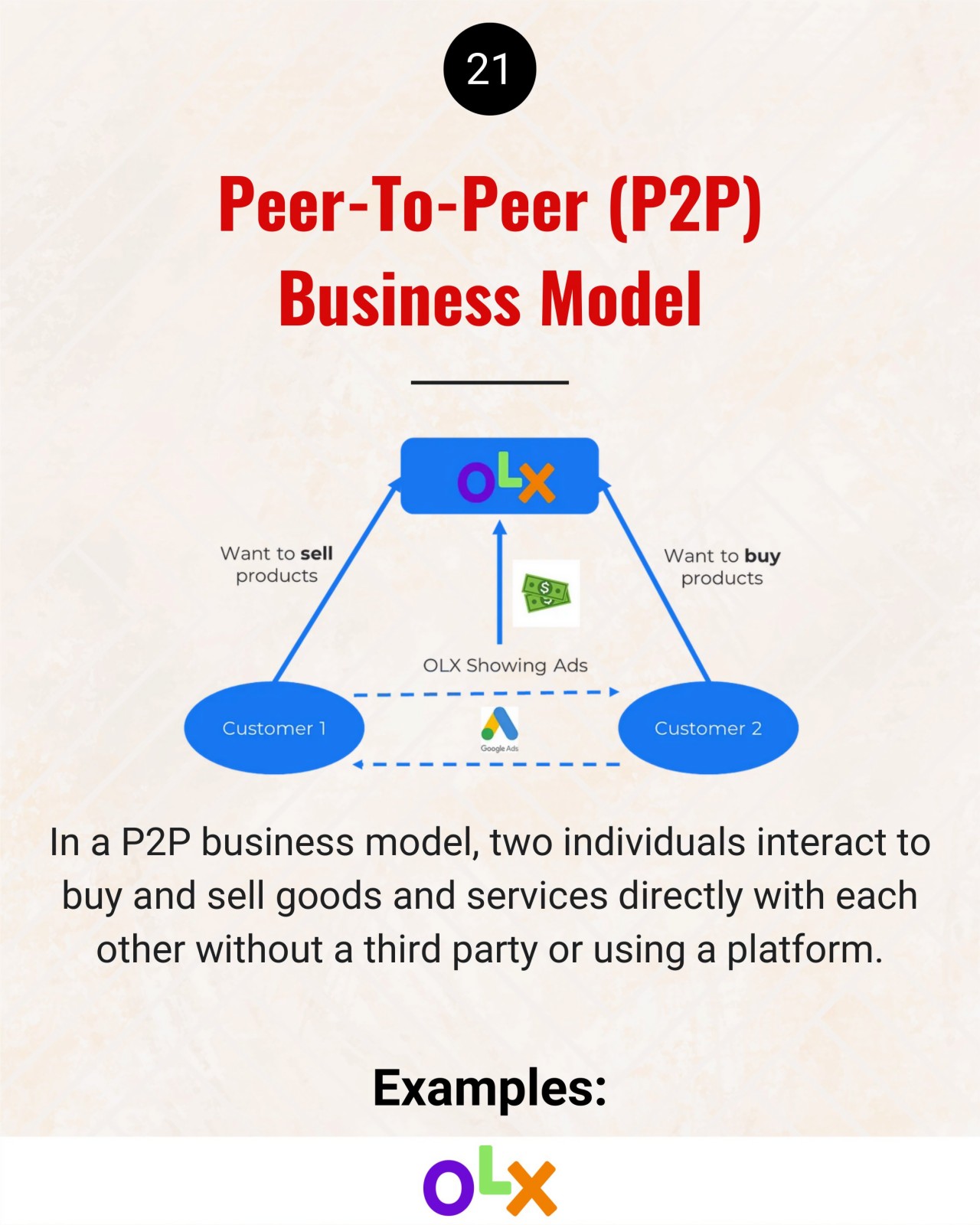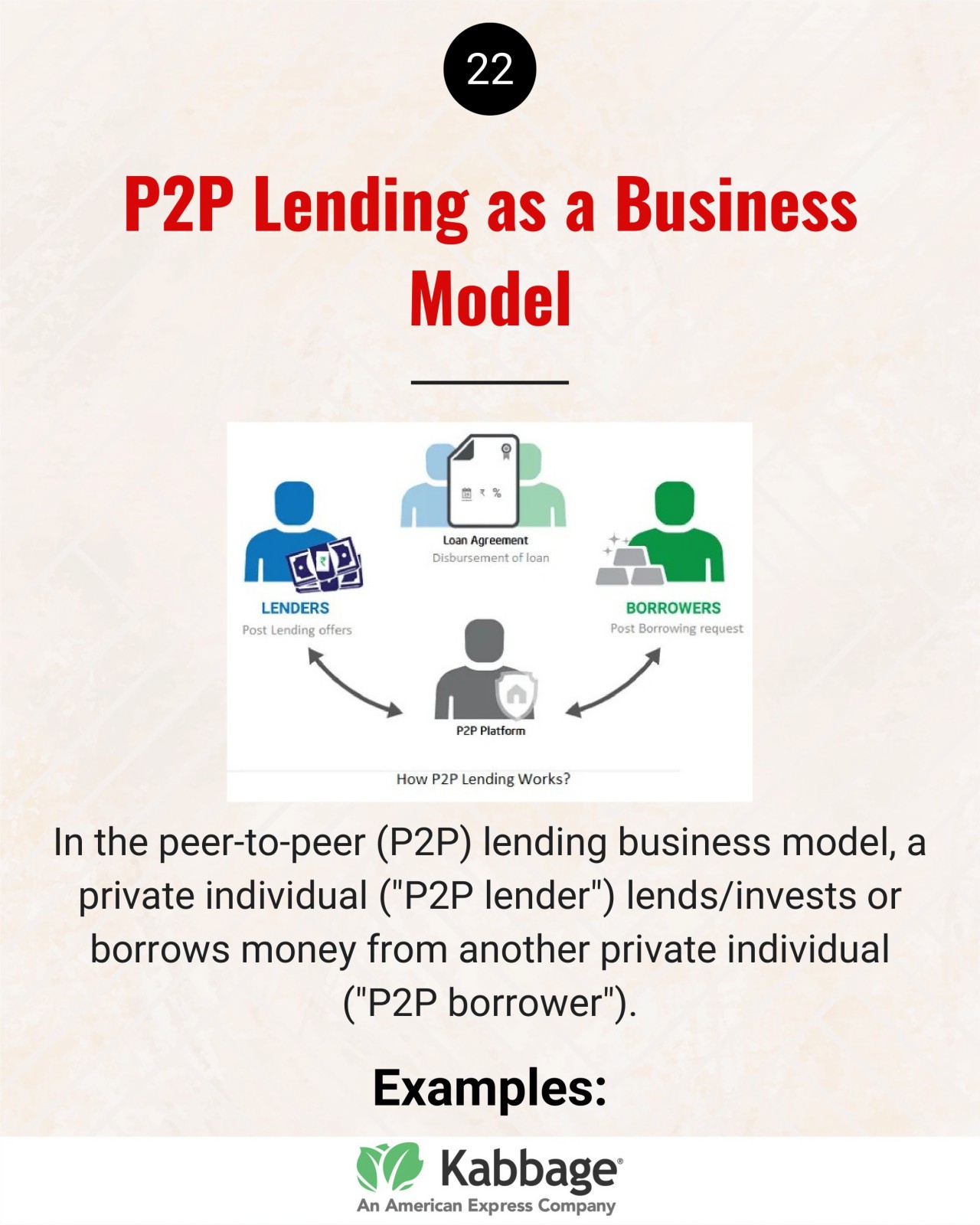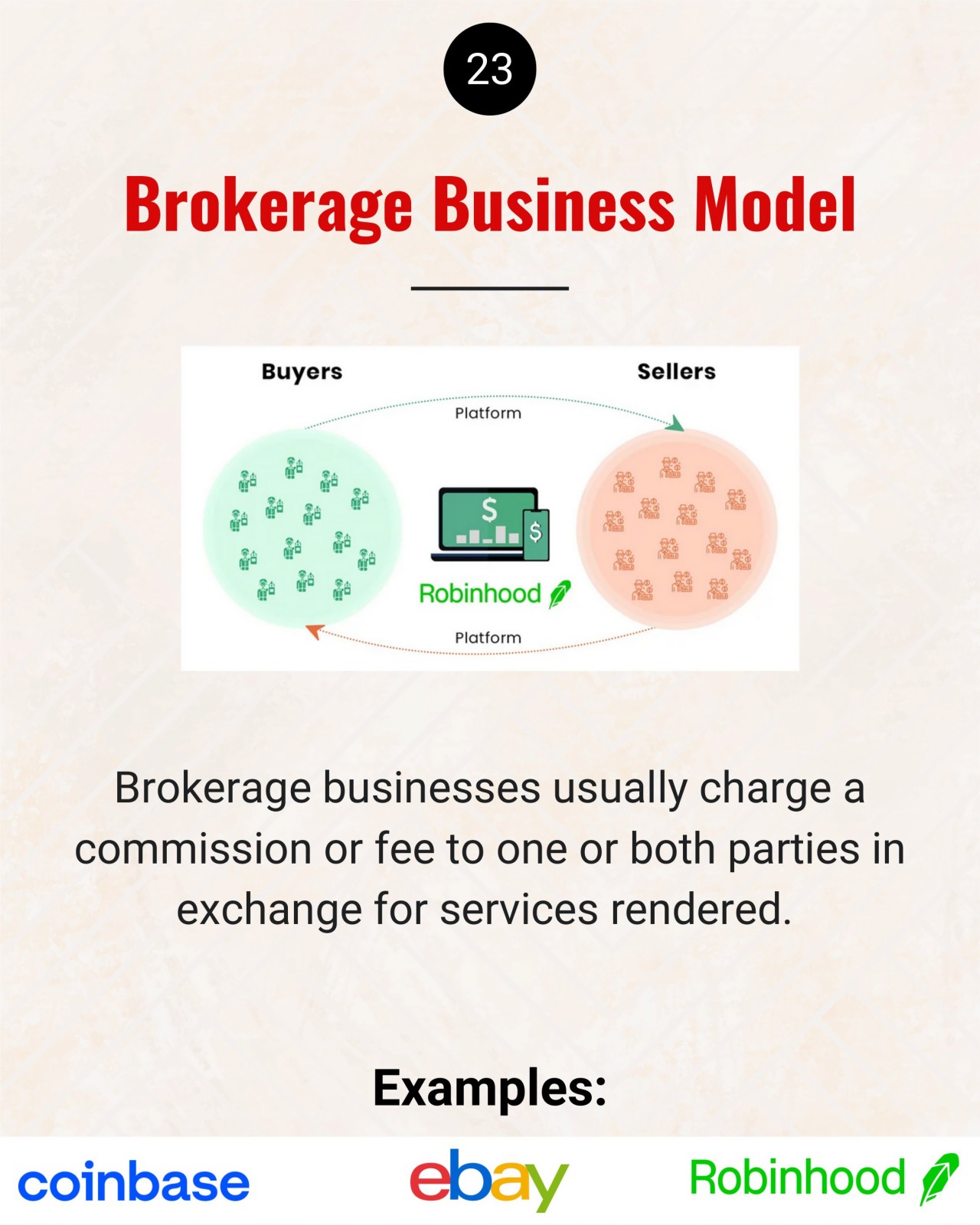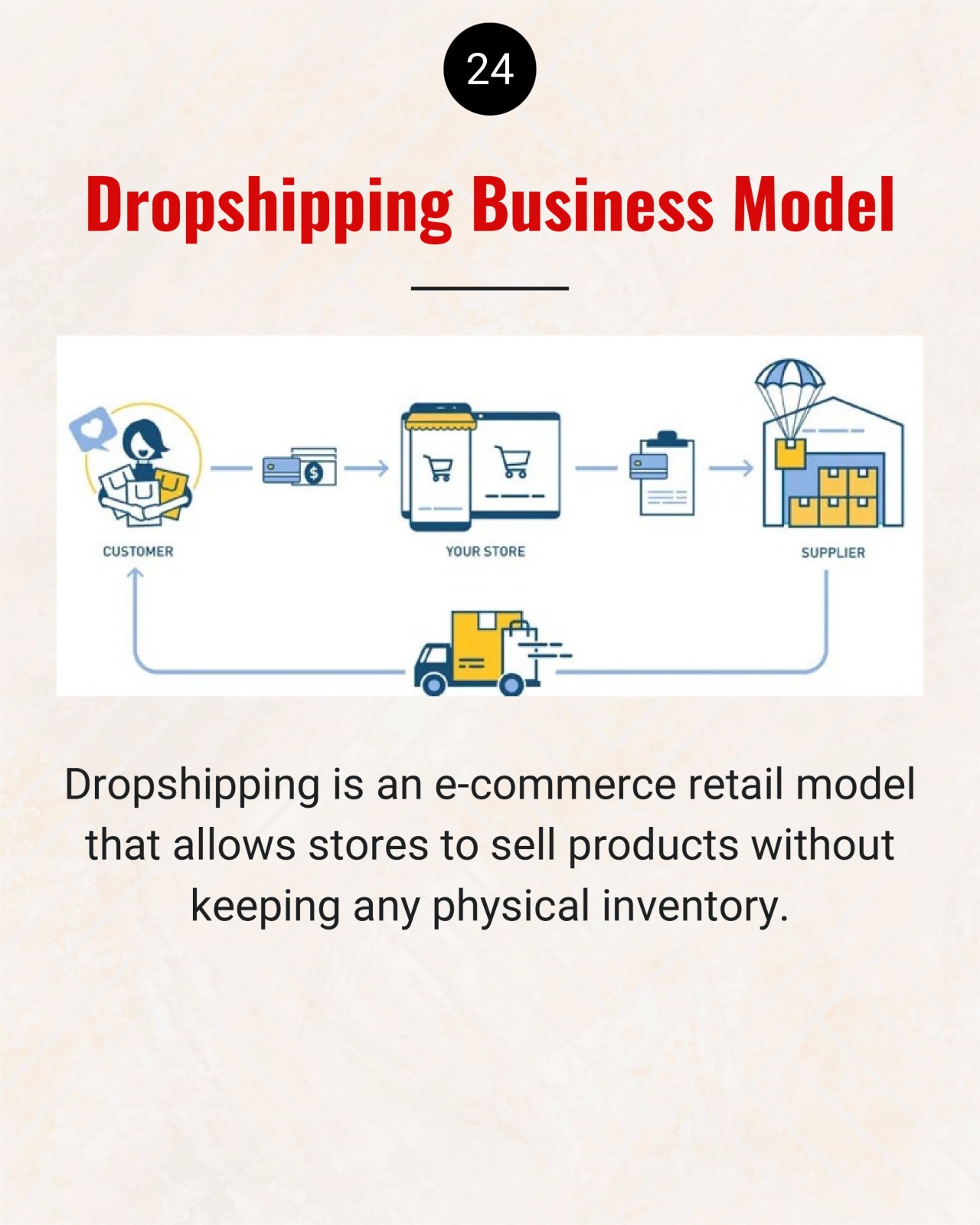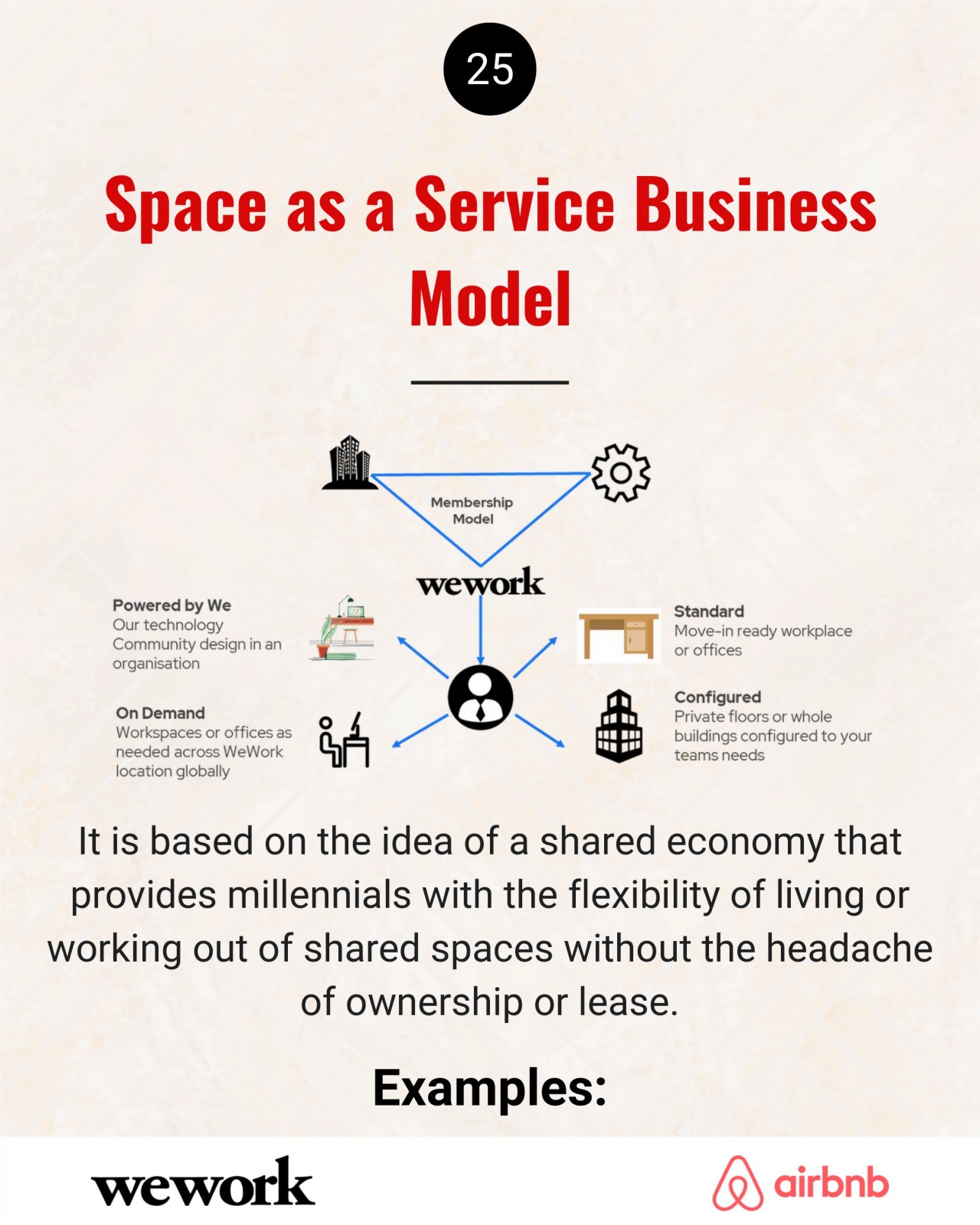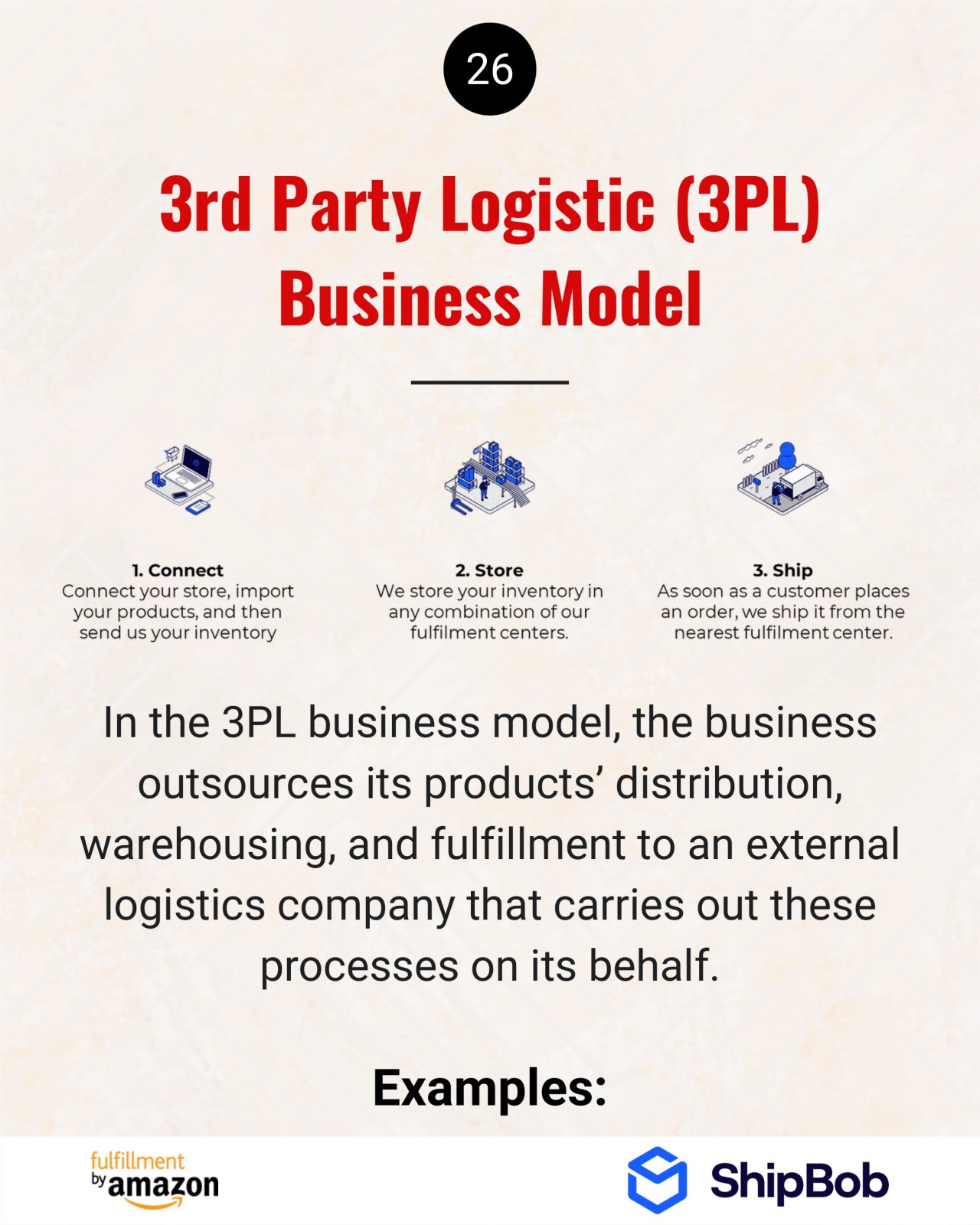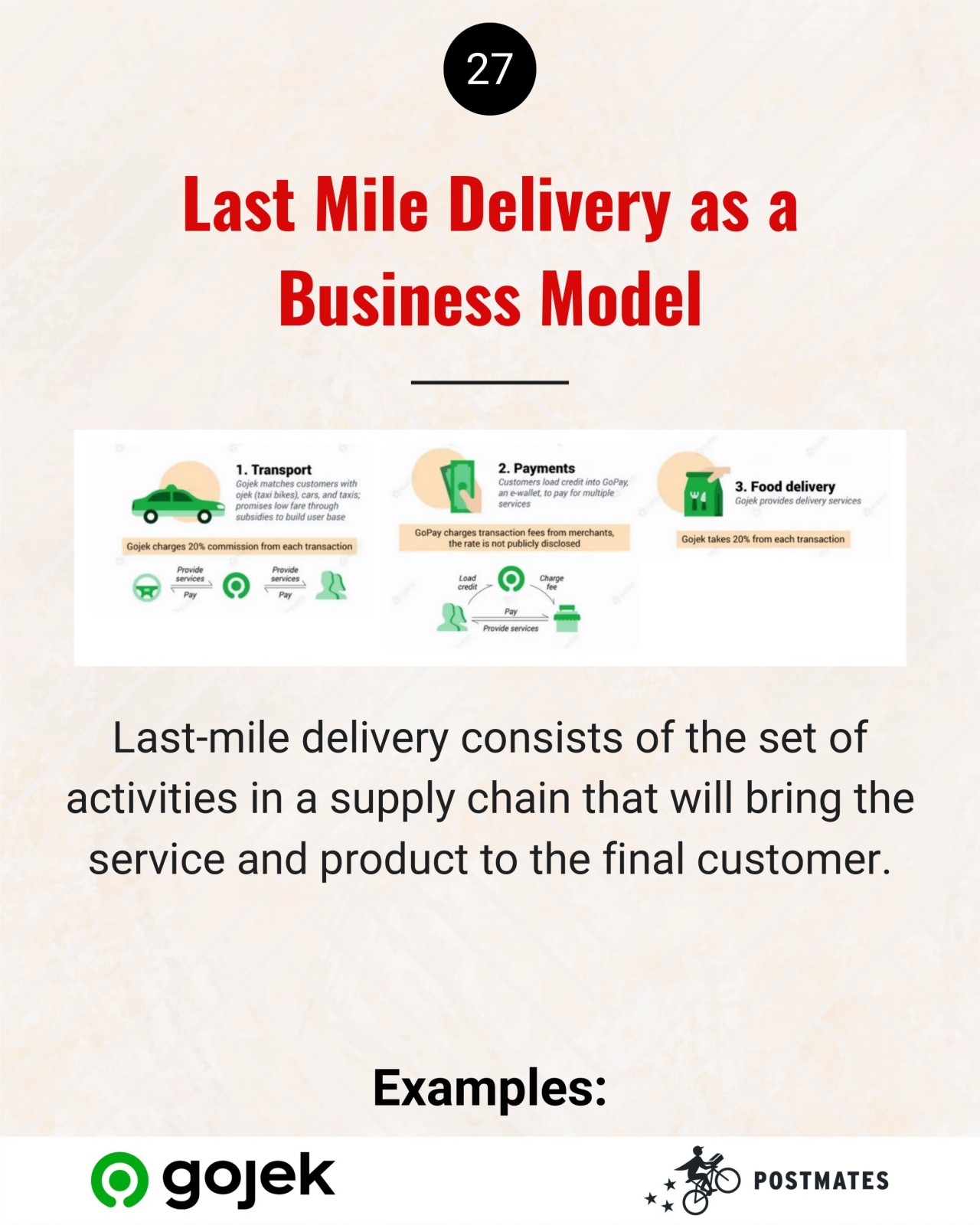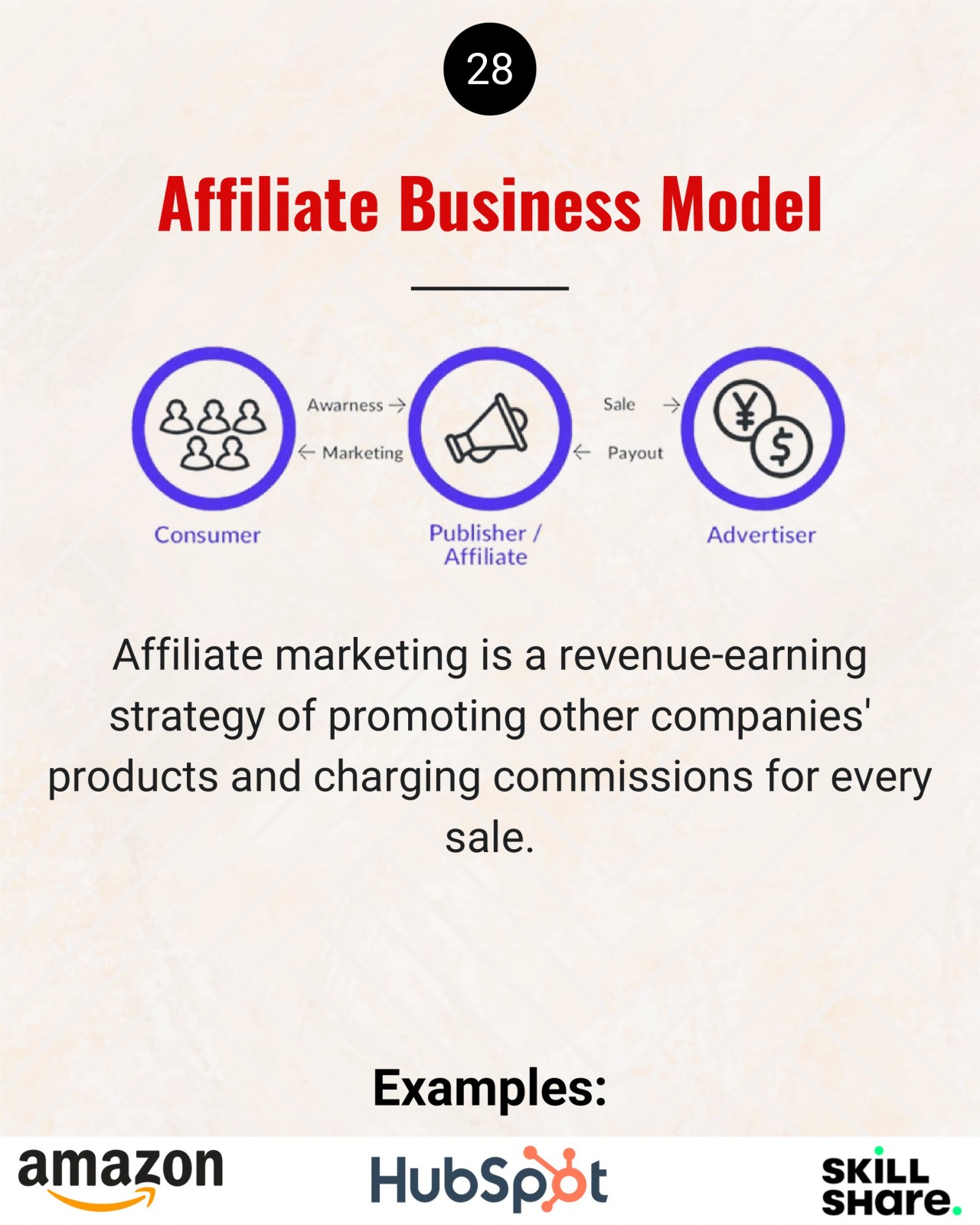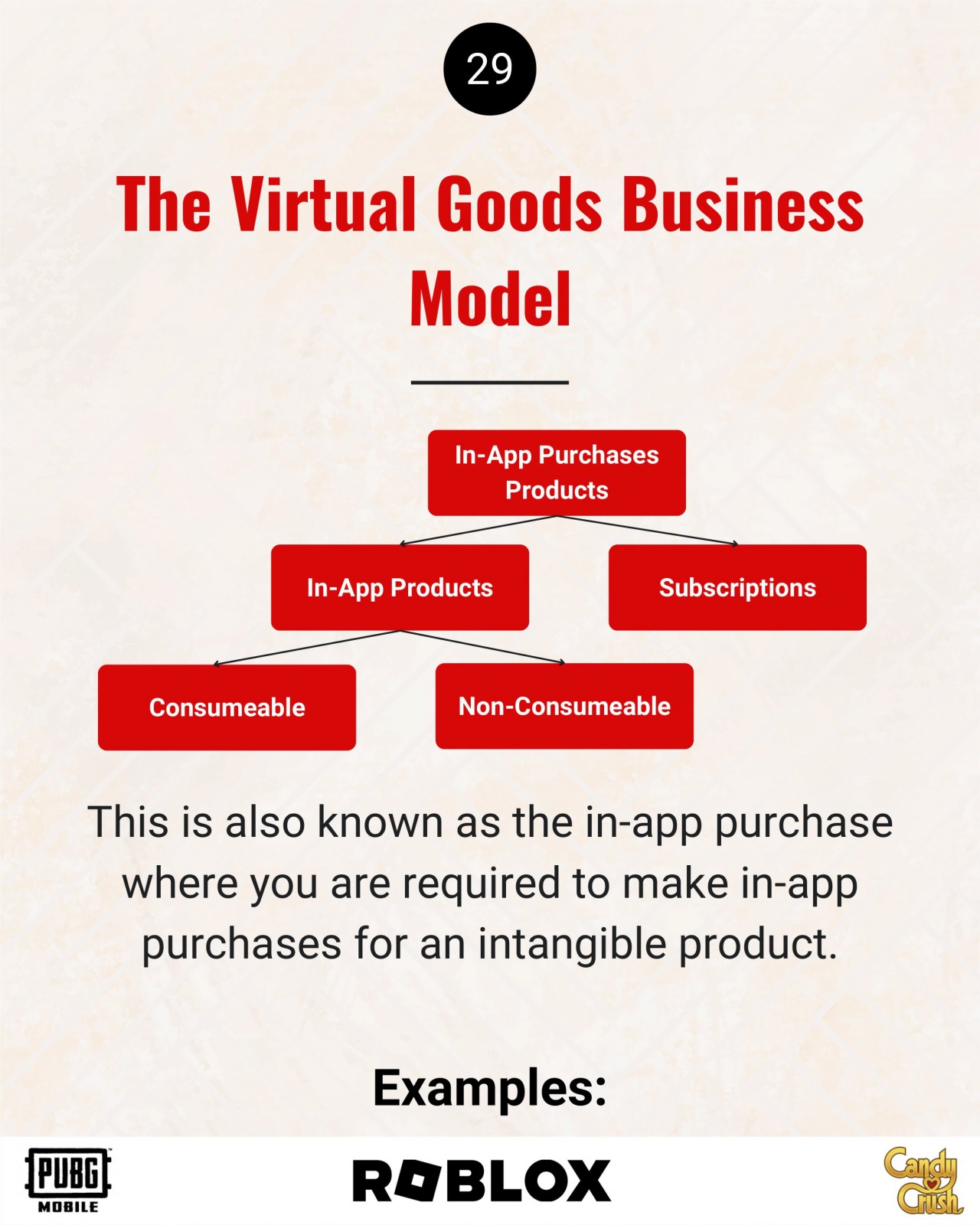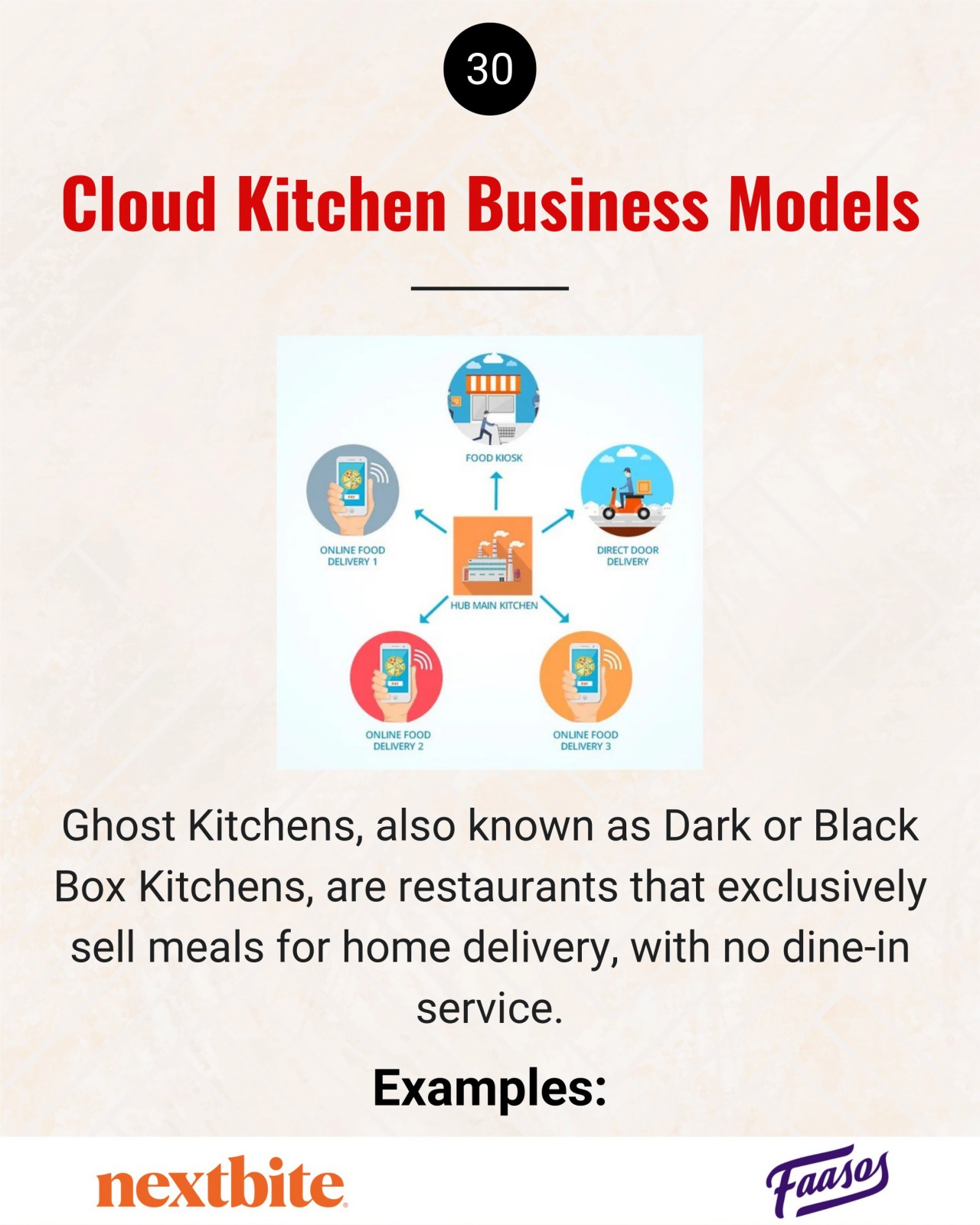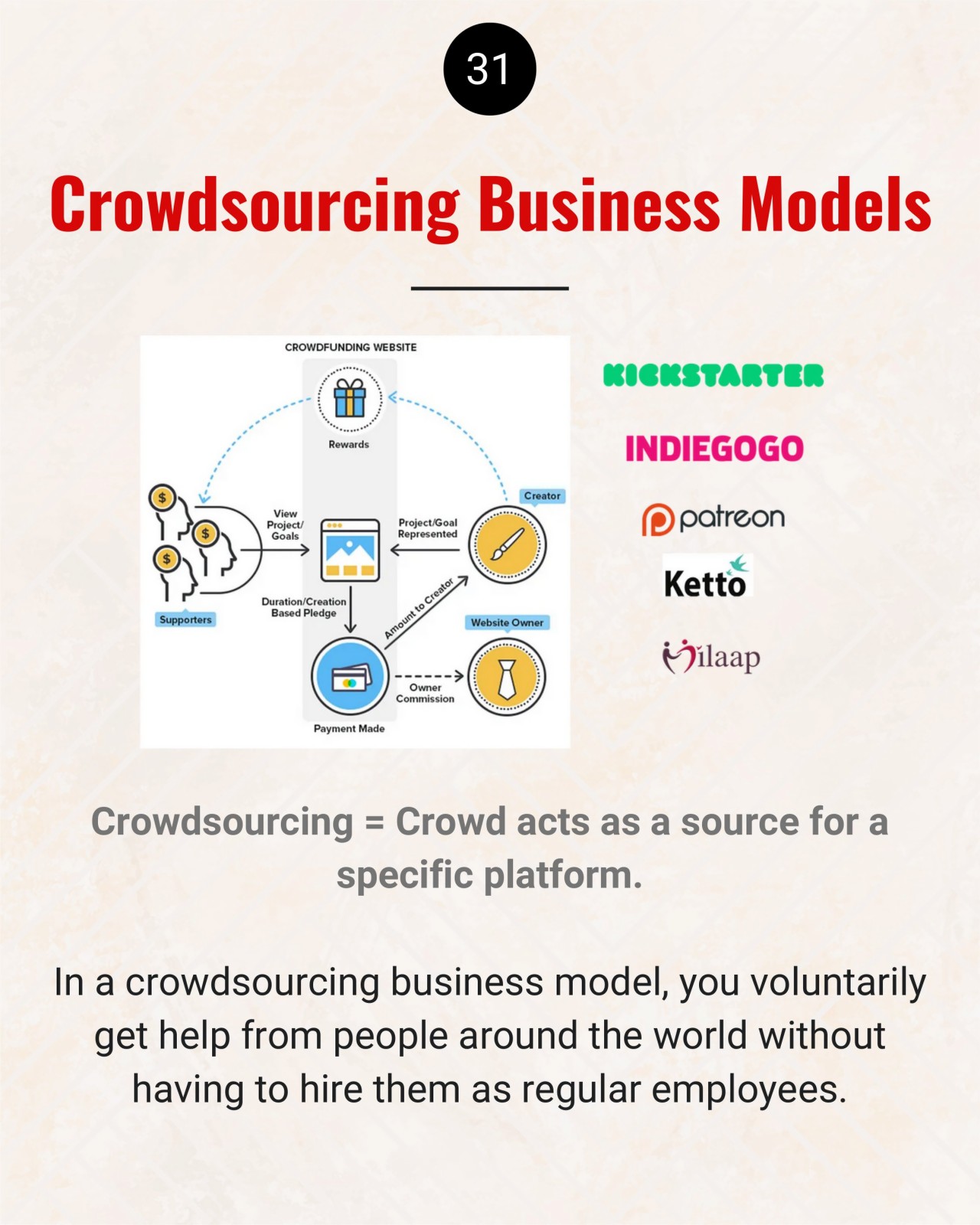30 Startup Business Models
Available in
From cloud computing to autonomous vehicles to 5G, here's what to watch.
A business model is the backbone of any successful venture, as it provides a foundational framework that outlines how a business creates, delivers, and captures value.
There are dozens of different business models type. We will start by describing the 12 most important ones and then we will present the full list of 31 Startup Business Models with concrete examples of companies that implement them.
Note that if you are in the Ideation or Business Development phase you might be able to grab some ideas and even to integrate several elements and thinking from multiple models to build your own. You don't necessarily have to limit your business operation to ene of these models.
However, there are several common archetypes or categories of business models that companies often adopt. These are some of the most prevalent types:
This presentation was compiled by Navdeep Yadav.
There are dozens of different business models type. We will start by describing the 12 most important ones and then we will present the full list of 31 Startup Business Models with concrete examples of companies that implement them.
Note that if you are in the Ideation or Business Development phase you might be able to grab some ideas and even to integrate several elements and thinking from multiple models to build your own. You don't necessarily have to limit your business operation to ene of these models.
Main Types of Business Models
There isn't a fixed number of business models, as they can vary widely based on industry, market dynamics, and specific company strategies.However, there are several common archetypes or categories of business models that companies often adopt. These are some of the most prevalent types:
E-commerce Model
Subscription Model
Freemium Model
Advertising Model
Affiliate Model
Franchise Model
Direct Sales Model
Marketplace Model
Razor and Blades Model
B2B (Business-to-Business) Model
Crowdsourcing Model
Sharing Economy Model
1. E-commerce Model
The E-Commerce model enables businesses to sell products or services online, in which all transactions are conducted electronically. Examples include Amazon and eBay.2. Subscription Model
Customers pay a recurring fee for access to a product or service. Examples include Netflix and Spotify.3. Freemium Model
Offers a basic service for free and charges for premium features or advanced functionalities. Examples include Dropbox and LinkedIn.4. Advertising Model
Revenue is generated by selling advertising space or promoting products and services. Examples include Google and Facebook.5. Affiliate Model
Earns revenue by promoting other companies' products or services and earning a commission on sales. Examples include affiliate marketing websites.6. Franchise Model
Allows individuals (franchisees) to operate their own businesses using the branding and support of a larger company (franchisor). Examples include McDonald's and Subway.7. Direct Sales Model
Products or services are sold directly to customers without intermediaries. Examples include Avon and Tupperware.8. Marketplace Model
Facilitates transactions between buyers and sellers, often taking a commission on each sale. Examples include Etsy and Airbnb.9. Razor and Blades Model
Sells a core product at a low price and generates recurring revenue through the sale of related consumables or accessories. Examples include Gillette razors and printer companies selling ink cartridges.10. B2B (Business-to-Business) Model
Sells products or services to other businesses rather than to end consumers. Examples include Salesforce and IBM.11. Crowdsourcing Model
Leverages a large group of people or a community to contribute ideas, solutions, or funding. Examples include Kickstarter and Wikipedia.12. Sharing Economy Model
Enables individuals to share resources, such as transportation or accommodations, often facilitated through a digital platform. Examples include Uber and Airbnb.Full List of 30 Startup Business Models (32 slides)
Articles
4 min 
Strategy
Article
Why does your startup needs to be global?
3 min 
Strategy
Article
Explaining Digital Transformation to Entrepreneurs
4 min 
Strategy
Article
Online Business: 3 digital must-haves to start
6 min 
Strategy
Article
How to build a successful digital business model?
3 min 
Strategy
Article
How to scale your business sucessfully
6 min 
Strategy
Article
Digital Academy Program
10 min 
Strategy
Article
Journalism, Media and Technology: Trends and Predictions for 2024
3 min 
Marketing
Article
Building customer communities for effective marketing campaigns
3 min 
Marketing
Article
How to Build Social Media Presence
3 min 
Marketing
Article
6 Marketing Challenges for your Company
3 min 
Marketing
Article
6 Tips to Build your Personal Brand
3 min 
Networking
Article
4 Immutable Rules of Business Networking
6 min 
Networking
Article
Seven Golden Tips for Good Networking
6 min 
Networking
Article
Three things to keep in mind when networking
6 min 
Networking
Article
Best 10 Apps for Business Networking
6 min 
Networking
Article
Write a Personal Presentation
Services
We are updating the information for this section. Our apologies.

Moosend
Email Marketing
Moosend is another email marketing tool that lets you create, monitor, and manage all your email campaigns in one place. Compared to Mailchimp, it offers relatively simple features: the ability to design and customize campaigns, collect user sign-up and opt-in/out data and produce and segment email subscriber lists.

Google Trends
Marketing Research, Content, Content Planning, SEO
Google Trends lets you do a comparative keyword research and to discover event-triggered spikes in keyword search volume. Google Trends provides keyword-related data including search volume index and geographical information about search engine users

Hitsteps
Site Statistics
Hitsteps specializes in real-time website visitor tracking. Its main dashboard allows you to see which country the visitor is in, how they found you, what page they are looking at, which browser they are using, which operating system they are using, and a whole lot more.

Moosend
Email Marketing
Moosend is another email marketing tool that lets you create, monitor, and manage all your email campaigns in one place. Compared to Mailchimp, it offers relatively simple features: the ability to design and customize campaigns, collect user sign-up and opt-in/out data and produce and segment email subscriber lists.

Hitsteps
Site Statistics
Hitsteps specializes in real-time website visitor tracking. Its main dashboard allows you to see which country the visitor is in, how they found you, what page they are looking at, which browser they are using, which operating system they are using, and a whole lot more.

Desygner
Desygner is an Online Graphic Design Tool for Non-Designers, with a simple UI and drag drop feature. If you are planning to design Logos, Banners, Cards, and more, Desygner is for you. Desygner also has 120+ Million Royalty Free Images from shutterstock to choose from, for presentation use or commercial use.

ExplodingTopics
Marketing Research
Lorem ipsum dolor sit amet, consectetur adipiscing elit, sed do eiusmod tempor incididunt ut labore et dolore magna aliqua. Ut enim ad minim veniam, quis nostrud exercitation ullamco laboris nisi ut aliquip ex ea commodo consequat. Duis aute irure dolor in reprehenderit in voluptate velit esse cillum dolore eu fugiat nulla pariatur. Excepteur sint occaecat cupidatat non proident, sunt in culpa qui officia deserunt mollit anim id est laborum.

Google Trends
Marketing Research, Content, Content Planning, SEO
Google Trends lets you do a comparative keyword research and to discover event-triggered spikes in keyword search volume. Google Trends provides keyword-related data including search volume index and geographical information about search engine users
Tools
We are updating the information for this section. Our apologies.
We are updating the information for this section. Our apologies.
Platforms

Rakuten
General
Lorem ipsum dolor sit amet, consectetur adipiscing elit, sed do eiusmod tempor incididunt ut labore et dolore magna aliqua. Ut enim ad minim veniam, quis nostrud exercitation ullamco laboris nisi ut aliquip ex ea commodo consequat. Duis aute irure dolor in reprehenderit in voluptate velit esse cillum dolore eu fugiat nulla pariatur. Excepteur sint occaecat cupidatat non proident, sunt in culpa qui officia deserunt mollit anim id est laborum.

AliExpress
General
Lorem ipsum dolor sit amet, consectetur adipiscing elit, sed do eiusmod tempor incididunt ut labore et dolore magna aliqua. Ut enim ad minim veniam, quis nostrud exercitation ullamco laboris nisi ut aliquip ex ea commodo consequat. Duis aute irure dolor in reprehenderit in voluptate velit esse cillum dolore eu fugiat nulla pariatur. Excepteur sint occaecat cupidatat non proident, sunt in culpa qui officia deserunt mollit anim id est laborum.

Shopee
General
Lorem ipsum dolor sit amet, consectetur adipiscing elit, sed do eiusmod tempor incididunt ut labore et dolore magna aliqua. Ut enim ad minim veniam, quis nostrud exercitation ullamco laboris nisi ut aliquip ex ea commodo consequat. Duis aute irure dolor in reprehenderit in voluptate velit esse cillum dolore eu fugiat nulla pariatur. Excepteur sint occaecat cupidatat non proident, sunt in culpa qui officia deserunt mollit anim id est laborum.

Walmart.com
General
Lorem ipsum dolor sit amet, consectetur adipiscing elit, sed do eiusmod tempor incididunt ut labore et dolore magna aliqua. Ut enim ad minim veniam, quis nostrud exercitation ullamco laboris nisi ut aliquip ex ea commodo consequat. Duis aute irure dolor in reprehenderit in voluptate velit esse cillum dolore eu fugiat nulla pariatur. Excepteur sint occaecat cupidatat non proident, sunt in culpa qui officia deserunt mollit anim id est laborum.

Etsy
Arts, Crafts & Gifts
Lorem ipsum dolor sit amet, consectetur adipiscing elit, sed do eiusmod tempor incididunt ut labore et dolore magna aliqua. Ut enim ad minim veniam, quis nostrud exercitation ullamco laboris nisi ut aliquip ex ea commodo consequat. Duis aute irure dolor in reprehenderit in voluptate velit esse cillum dolore eu fugiat nulla pariatur. Excepteur sint occaecat cupidatat non proident, sunt in culpa qui officia deserunt mollit anim id est laborum.

Taobao
General
Lorem ipsum dolor sit amet, consectetur adipiscing elit, sed do eiusmod tempor incididunt ut labore et dolore magna aliqua. Ut enim ad minim veniam, quis nostrud exercitation ullamco laboris nisi ut aliquip ex ea commodo consequat. Duis aute irure dolor in reprehenderit in voluptate velit esse cillum dolore eu fugiat nulla pariatur. Excepteur sint occaecat cupidatat non proident, sunt in culpa qui officia deserunt mollit anim id est laborum.

Pinduoduo
General
Lorem ipsum dolor sit amet, consectetur adipiscing elit, sed do eiusmod tempor incididunt ut labore et dolore magna aliqua. Ut enim ad minim veniam, quis nostrud exercitation ullamco laboris nisi ut aliquip ex ea commodo consequat. Duis aute irure dolor in reprehenderit in voluptate velit esse cillum dolore eu fugiat nulla pariatur. Excepteur sint occaecat cupidatat non proident, sunt in culpa qui officia deserunt mollit anim id est laborum.

Target.com
General
Lorem ipsum dolor sit amet, consectetur adipiscing elit, sed do eiusmod tempor incididunt ut labore et dolore magna aliqua. Ut enim ad minim veniam, quis nostrud exercitation ullamco laboris nisi ut aliquip ex ea commodo consequat. Duis aute irure dolor in reprehenderit in voluptate velit esse cillum dolore eu fugiat nulla pariatur. Excepteur sint occaecat cupidatat non proident, sunt in culpa qui officia deserunt mollit anim id est laborum.

Wayfair
Homewares
Lorem ipsum dolor sit amet, consectetur adipiscing elit, sed do eiusmod tempor incididunt ut labore et dolore magna aliqua. Ut enim ad minim veniam, quis nostrud exercitation ullamco laboris nisi ut aliquip ex ea commodo consequat. Duis aute irure dolor in reprehenderit in voluptate velit esse cillum dolore eu fugiat nulla pariatur. Excepteur sint occaecat cupidatat non proident, sunt in culpa qui officia deserunt mollit anim id est laborum.

JD.com
General
Lorem ipsum dolor sit amet, consectetur adipiscing elit, sed do eiusmod tempor incididunt ut labore et dolore magna aliqua. Ut enim ad minim veniam, quis nostrud exercitation ullamco laboris nisi ut aliquip ex ea commodo consequat. Duis aute irure dolor in reprehenderit in voluptate velit esse cillum dolore eu fugiat nulla pariatur. Excepteur sint occaecat cupidatat non proident, sunt in culpa qui officia deserunt mollit anim id est laborum.

Flipkart
General
Lorem ipsum dolor sit amet, consectetur adipiscing elit, sed do eiusmod tempor incididunt ut labore et dolore magna aliqua. Ut enim ad minim veniam, quis nostrud exercitation ullamco laboris nisi ut aliquip ex ea commodo consequat. Duis aute irure dolor in reprehenderit in voluptate velit esse cillum dolore eu fugiat nulla pariatur. Excepteur sint occaecat cupidatat non proident, sunt in culpa qui officia deserunt mollit anim id est laborum.

Wildberries
General
Lorem ipsum dolor sit amet, consectetur adipiscing elit, sed do eiusmod tempor incididunt ut labore et dolore magna aliqua. Ut enim ad minim veniam, quis nostrud exercitation ullamco laboris nisi ut aliquip ex ea commodo consequat. Duis aute irure dolor in reprehenderit in voluptate velit esse cillum dolore eu fugiat nulla pariatur. Excepteur sint occaecat cupidatat non proident, sunt in culpa qui officia deserunt mollit anim id est laborum.

Tokopedia
Product Marketplace
Lorem ipsum dolor sit amet, consectetur adipiscing elit, sed do eiusmod tempor incididunt ut labore et dolore magna aliqua. Ut enim ad minim veniam, quis nostrud exercitation ullamco laboris nisi ut aliquip ex ea commodo consequat. Duis aute irure dolor in reprehenderit in voluptate velit esse cillum dolore eu fugiat nulla pariatur. Excepteur sint occaecat cupidatat non proident, sunt in culpa qui officia deserunt mollit anim id est laborum.

Adyen
The Adyen payments platform supports all key payment methods globally. Also, many payment methods can be used outside of the shoppers’ country. There's a processing fee plus payment method fee per transaction, no set-up fee, 24/7 in-house support and access to a full range of tools on the platform.

Accelevents
General
Accelevents features includes seamless live streaming, in-depth analytic reports, interactive and customizable exhibitor booths, and 1:1 speed networking. It exceles both in all-in-one virtual & hybrid events platform, enabling organizers and marketing professionals to create human connections and drive sustainable growth.

Whova
General
Whova is an all-in-one event management solution that makes events modern and trendy, attracts and engages attendees effectively, and helps event organizers save time on managing event logistics. Whova’s platform consists of an award-winning event app, efficient online registration, powerful event marketing, and time-saving event management tools.

Conference Tracker
General
Coinference Tracker is a specific attendance tracking tool we had to include on this list. Most used by academic institutions, conferences, and education-related businesses, Conference Tracker withstands even the most complicated of multi-track and complex session events.

PheedLoop
General
Pheedloop is the event platform that is pushing the boundaries of what is possible for the future of events. This platform includes registration, badge design, credit tracking, streaming with Meet & Stream, a custom-branded mobile app, donations, gamification, and 1:1 video networking. Real-time presence tracking empowers attendees to always see who is around them at the event, and connect privately.

FundedByMe
General
FundedByMe (Sweden)is one of the first crowdfunding platforms in the world to offer both reward-based and equity crowdfunding. The platform has a major focus on European entrepreneurs to facilitate cross-border investments that benefit both entrepreneurs and investors to assist with job creation and economic growth.

Goteo
General
Goteo (Spain) is a social network for crowdfunding and distributed collaboration (services, infrastructures, microtasks and other resources) for projects that contribute to the common good, free knowledge, and open code. So Goteo invites both financiers and collaborators to work on getting social good projects off the ground through rewards-based arrangement.

Udemy
General
Udemy is a great option for casual learners because it contains you can find courses about anything. Udemy is also one of the biggest online course platforms around. Anyone can create a course though, so quality isn’t always the greatest. Also courses are no recognized like in other education websites.

Lynda
General
Lynda is great to jump-start learning something new or brush-up your skills. Also classes are very practical so there is a great chance that you can use what your learned right away. It is not a a great place to get some academic knowledge or to get to the very specific areas of advanced programming.

Masterclass
General
MasterClass is an online learning platform where courses are taught by world-famous experts and celebrities. Masterclass is platform for creatives who are interested in personal development and seeking inspiration from the best professionals such as Natalie Portman, Martin Scorsese, Christina Aguilera, Gordon Ramsay or Dan Brown.

Masterclass
General
MasterClass is an online learning platform where courses are taught by world-famous experts and celebrities. Masterclass is platform for creatives who are interested in personal development and seeking inspiration from the best professionals such as Natalie Portman, Martin Scorsese, Christina Aguilera, Gordon Ramsay or Dan Brown.

Codecademy
General
CodeAcademy's contents are interactive and engaging and beginner friendly. Codecademy offers courses to make learning to code and designing websites fun and easy. You can choose to learn specific languages, such as JavaScript, or take a crash course in cybersecurity. Even better, many classes are free, though the paid plan offers additional learning tools, courses, and community support.

Canvas Network
General
Canvas Network specializes in professional development classes for teachers, school administrators, and other education leaders. Topics include leading and applying assessment in student affairs, supporting women in STEM fields, and research data management for librarians. Students can access MOOCs in English, Chinese, Portugese, and Spanish.

Cognitive Class
General
Cognitive Class is an initiative by IBM to spread data literacy through free classes for students and experienced IT professionals. Users can pursue coursework at their own pace with no time restrictions for completion. These MOOCs cover individual topics like Python for data science, reactive architecture, and digital analytics and regression.

Kadenze
General
Kadenze is a non for-profit company with the support of 18 institutional partners, including Princeton University and the Rhode Island School of Design. This MOOC provider focuses on music, visual arts, creative technology, and other fields of study that lagged behind due to the prominence of STEM education. Students enjoy self-paced, mobile-friendly content that lets them showcase their skills with professional portfolio tools. Most MOOC's are free.






Templates




























No Information for this section yet. Our apologies.
No Information for this section yet. Our apologies.
Editorial
8 min 
2024-12-18
Education
Leonel Guerreiro: Digital Innovation is Key for SMEs in the Global Market
9 min 
2024-11-17
Events
IBTM World: Everything You Need to Know to Maximize Your Experience
7 min 
2024-11-05
Events
Web Summit: Everything You Need to Know to Maximize Your Experience
8 min 
2024-09-17
Education
Tim Vieira: We Want a Brave Generation that Makes Things Happen
2 min 
2024-09-09
Education
Nova SBE University has 2 Master’s Programs in the Financial Times Top 10
7 min 
2024-06-09
World
Global Startup Ecosystem Index Report 2024
7 min 
2024-05-18
Sustainability
Exclusive Interview: Luís Neves, CEO of GeSi, talks about the Digital With Purpose Summit
5 min 
2024-05-18
Technology
Sam Altman talks P-Doom, AI Girlfriends and the Future Vision of an AGI World
4 min 
2024-05-16
Sustainability
Cascais is hosting the largest global digital sustainability meeting
2 min 
2024-04-14
Education
What is InnoTechPreneurship and why do we need it?
3 min 
2024-04-11
Technology
Meta Teases AI Models with 'Human-Level Cognition'
2 min 
2024-04-08
General
EIT Virtual Incubation Program Now Open!
4 min 
2024-04-04
General
Marketing Journeys – Fusion Explores Cultural Marketing in its 12th Edition
3 min 
2024-04-03
Business
How Can Companies Attract Great Talents
4 min 
2024-02-29
General
Portuguese Delegation takes 13 Startups to Web Summit Qatar
2 min 
2024-02-27
General
NOVA FCT Awards Innovative Projects in its Entrepreneurship Program
8 min 
2023-11-28
Technology
André Mão de Ferro: “In the Deep Tech, the First Investment is the Most Complicated”
2021-12-28
Science
How James Webb's Deployments MUST Work
2021-12-27
Business
How to recognize a diamond of a marketing idea
2021-12-16
Technology
What is Basic Attention Token and How to Earn BAT
2021-12-13
Technology
Crypto! These CEOs share their vision (Musk, Dorsey, Brooks)
2021-12-09
Business
Uber, Deliveroo and other gig economy firms face strict new rules in Europe
2021-12-02
Technology
Real estate has gone meta
2021-12-01
World
Will venture capital get cancelled by Gen Z?
2021-11-17
Technology
How To Track Competitors’ Website Traffic And Level Up Your Strategy
2021-11-17
Sustainability
COP26: The truth behind the new climate change denial
2021-11-09
Technology
AI-driven search engine You.com takes on Google with $20M
2021-11-07
Technology
How Mark Zuckerberg's Meta Already Lost The Metaverse
3 min 
2021-11-03
General
FIN Portugal, promoting business opportunities worldwide
2021-11-02
World
Why Facebook Is More Worried About Europe Than the U.S.
2021-10-29
Business
Opinion: The 'Great Resignation' and 'Striketober' are sending a message
2021-10-29
Sustainability
Greta Thunberg and Vanessa Nakate's Open Letter to the Media
2021-10-26
Technology
US revokes licence of top Chinese telecoms company
2021-10-19
Sustainability
'Case closed': 99.9% of scientists agree climate emergency caused by humans
2021-09-30
World
Three Wall Street Titans Reveal the Next Big Risk
2 min 
2021-09-13
Business
European consumer confidence is rising
2021-09-11
Sustainability
Illegal Sand Mining Is Ruining These Countries' Ecosystems
2021-09-07
Startups
Europe’s 100 hottest young scaleups of 2021
2021-09-04
Sustainability
Climate scientist explains how climate makes storms stronger - CNN Video
2021-08-24
Science
Expert: Now is the time to prepare for the quantum computing revolution
2021-08-23
Technology
The dos and don’ts of machine learning research
2021-08-21
Business
Bad commutes make us more likely to want to work virtually
2021-08-15
Business
The Top 5 Reasons Why Entrepreneurship is Difficult (and How to Overcome Them)
2 min 
2021-08-13
Business
5 steps to follow for a successful online store
2021-08-11
Startups
A close look at Singapore’s thriving startup ecosystem – TechCrunch
4 min 
2021-08-08
Business
Five Advantages of a Hybrid Working Model
2021-07-31
Sustainability
More countries hike climate pledges, piling pressure on major emitters
2021-07-27
Science
SpaceX just finished Starship's 100th Raptor engine
2021-07-26
Science
What happens to marine life when oxygen is scarce?
2021-07-23
Startups
More money chases Indian tech start-ups as investors shun Chinese names
2021-07-20
Startups
21 startups to watch in central Europe, according to VCs
2021-07-19
Technology
Why Unreal Engine 5 has Changed Gaming Forever
2021-07-17
Science
The James Webb Space Telescope Explained In 9 Minutes
2021-06-29
General
Innovation expert: This hack can help identify new business ideas
2021-04-16
General
Pentagon confirms leaked photos and video of UFOs are legitimate
2021-04-16
General
As Artemis Moves Forward, NASA Picks SpaceX to Land Next Americans on Moon
2021-04-15
General
JPMorgan pledges $2.5 trillion over the next decade toward climate change
2021-04-15
General
China and US tech decoupling will slash global GDP, warns IMF
1 min 
2019-12-09
Sustainability
United Nations Climate Conference COP25 Update
